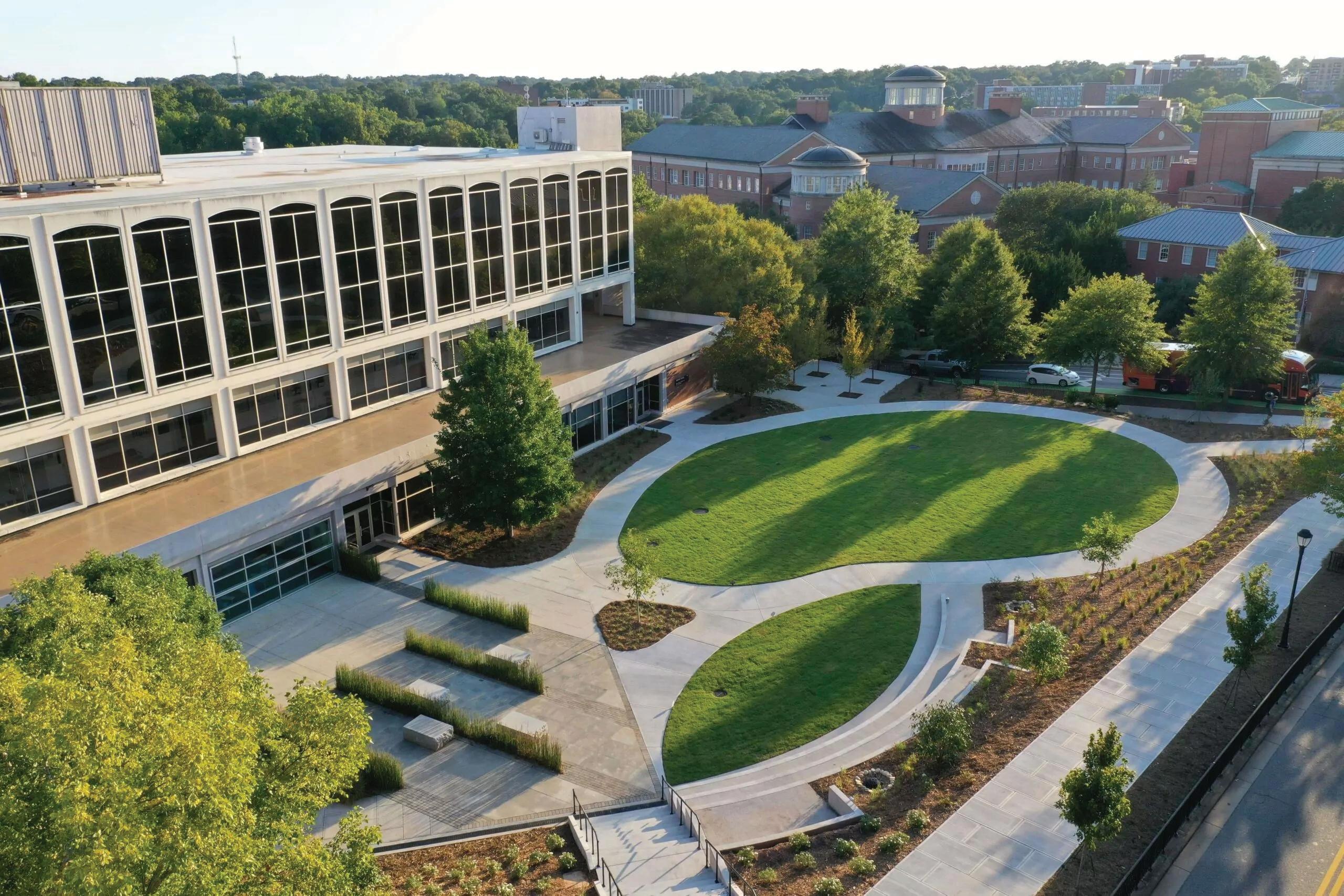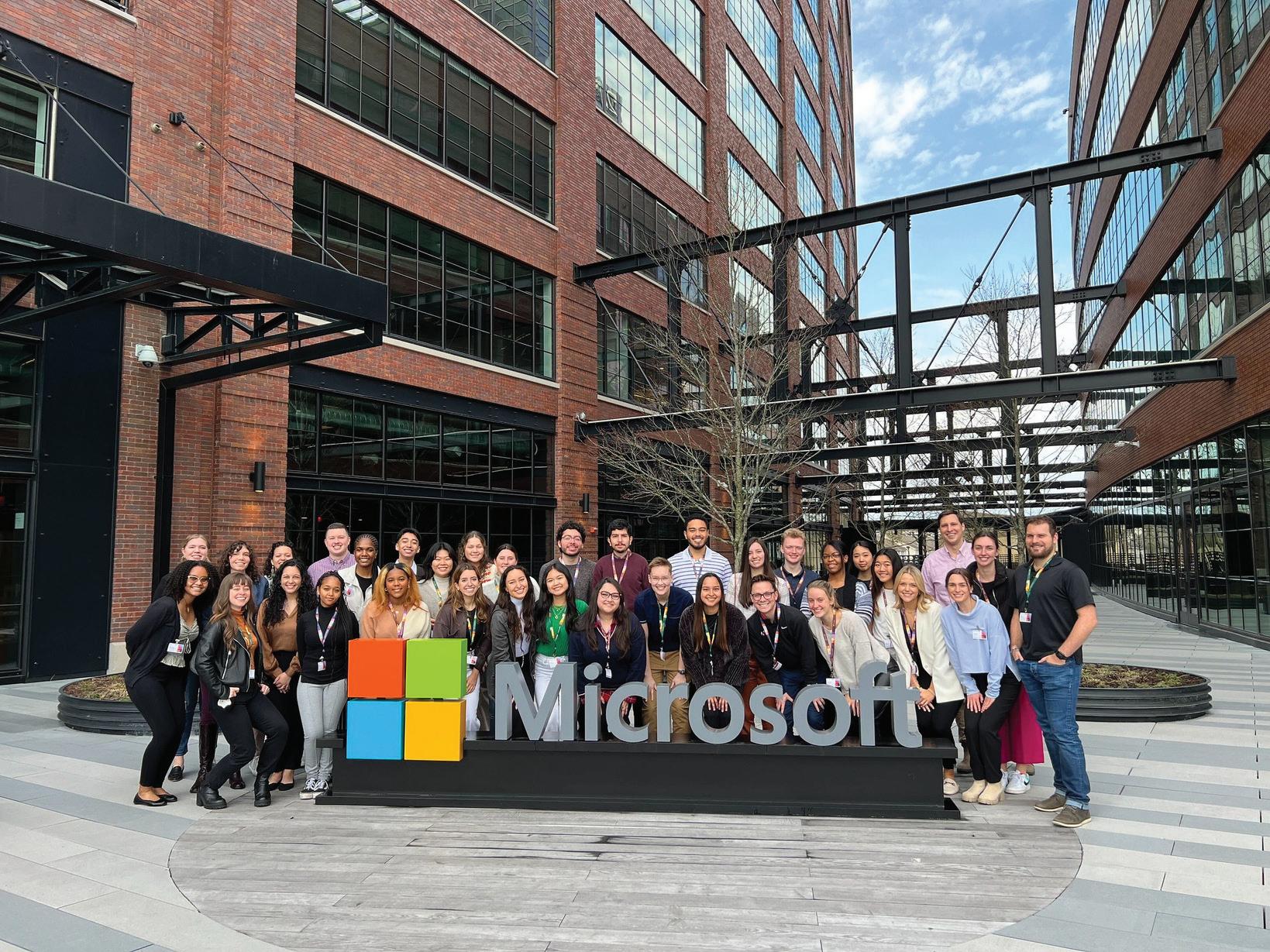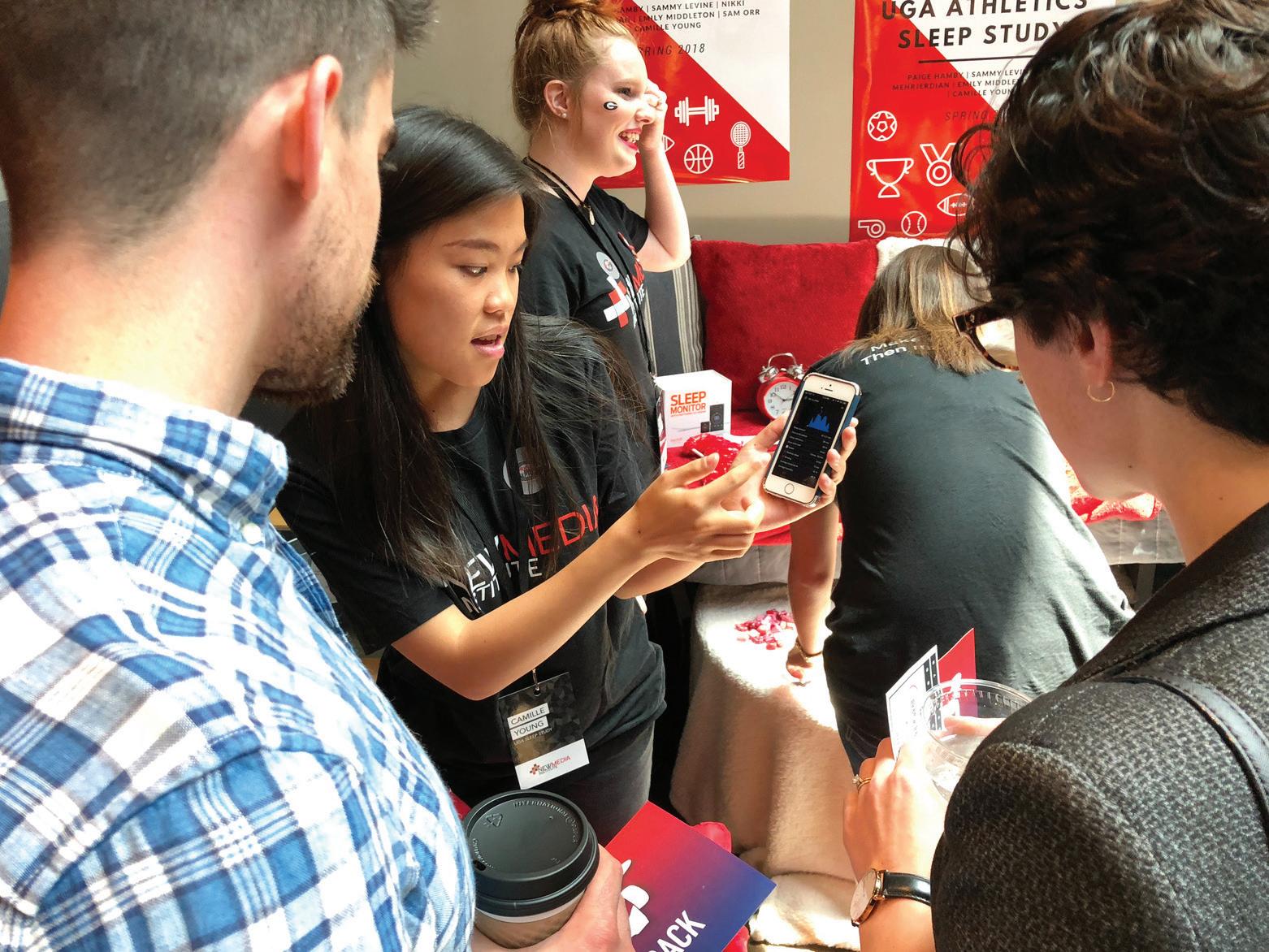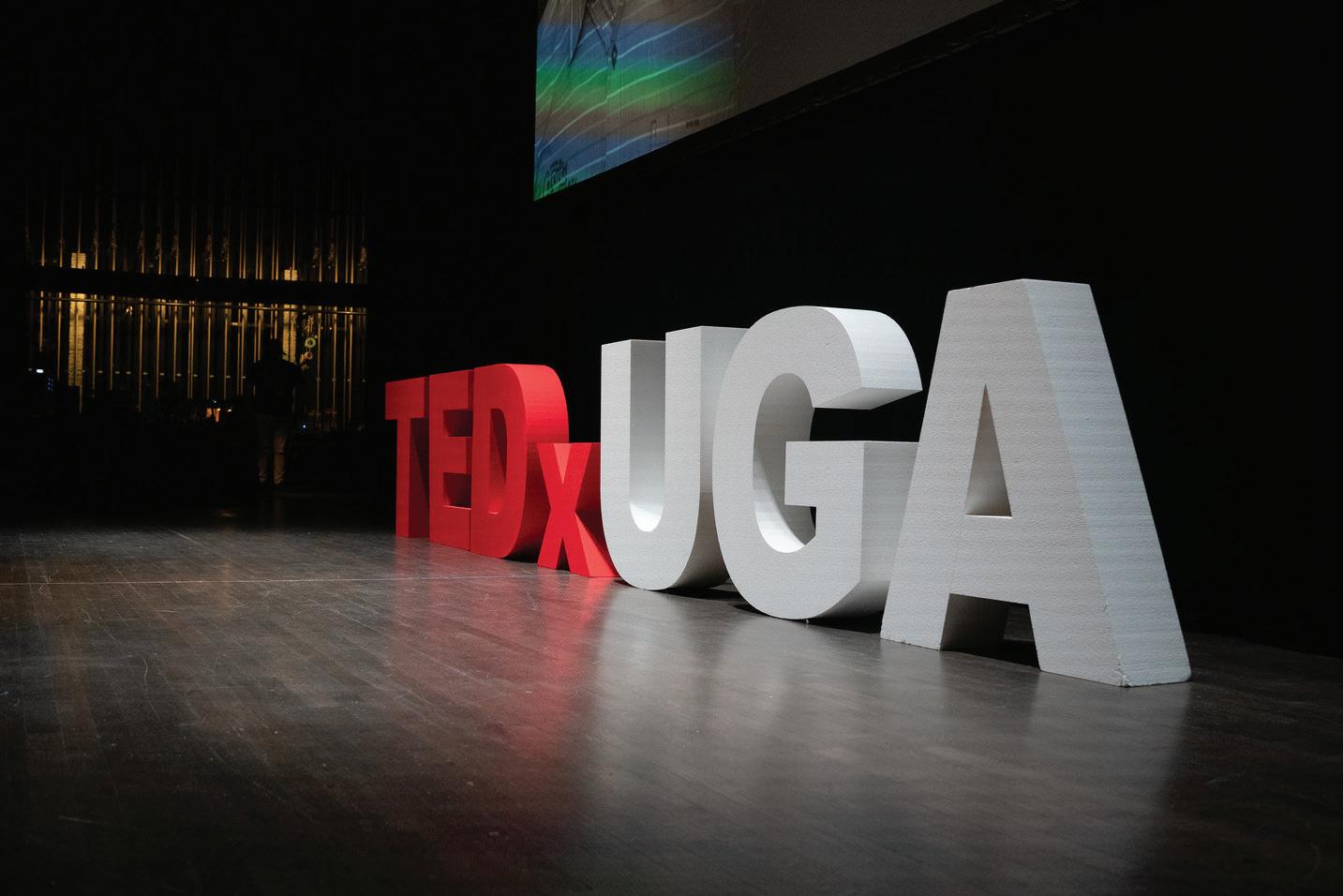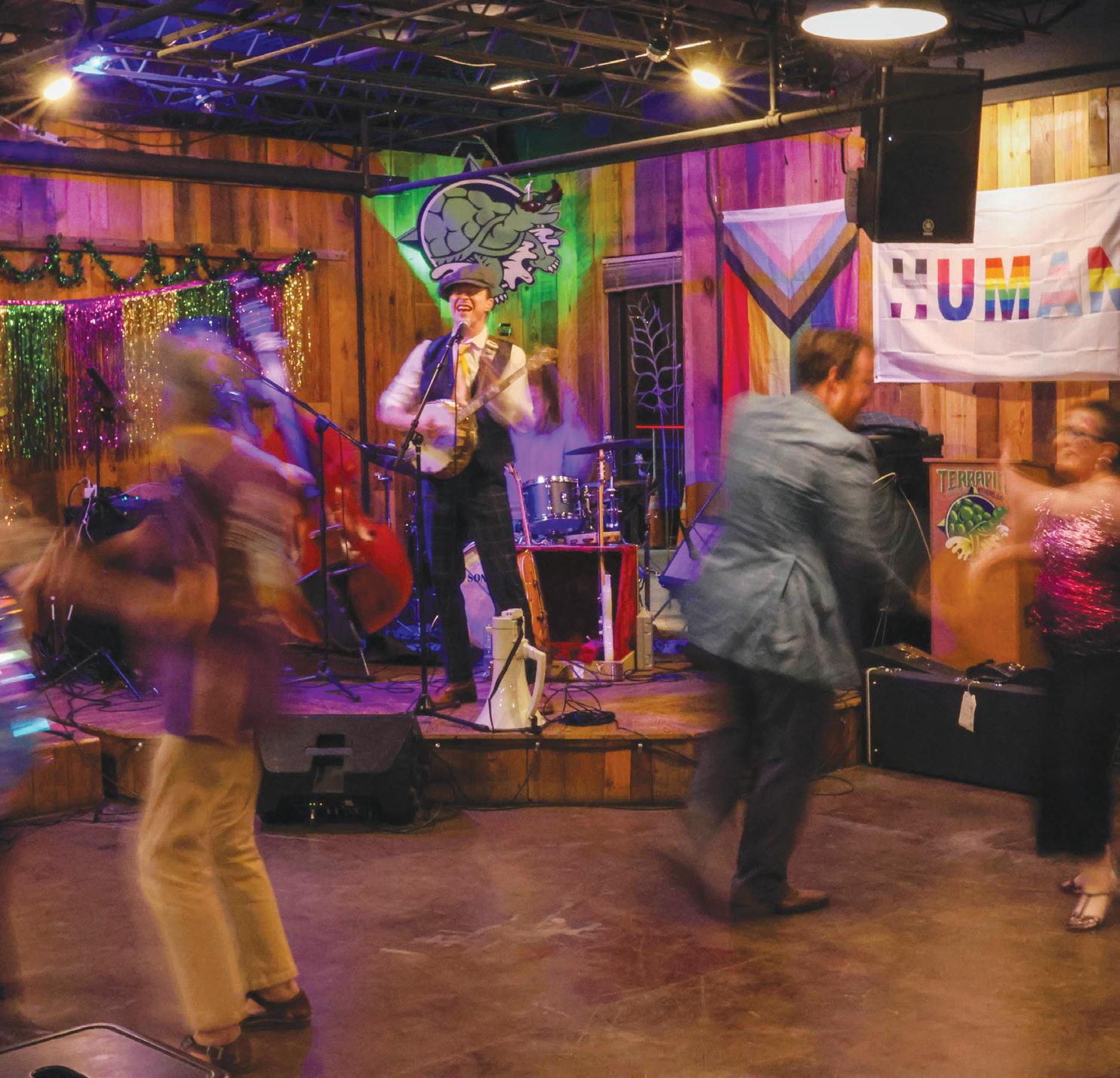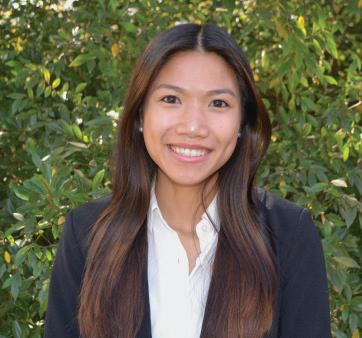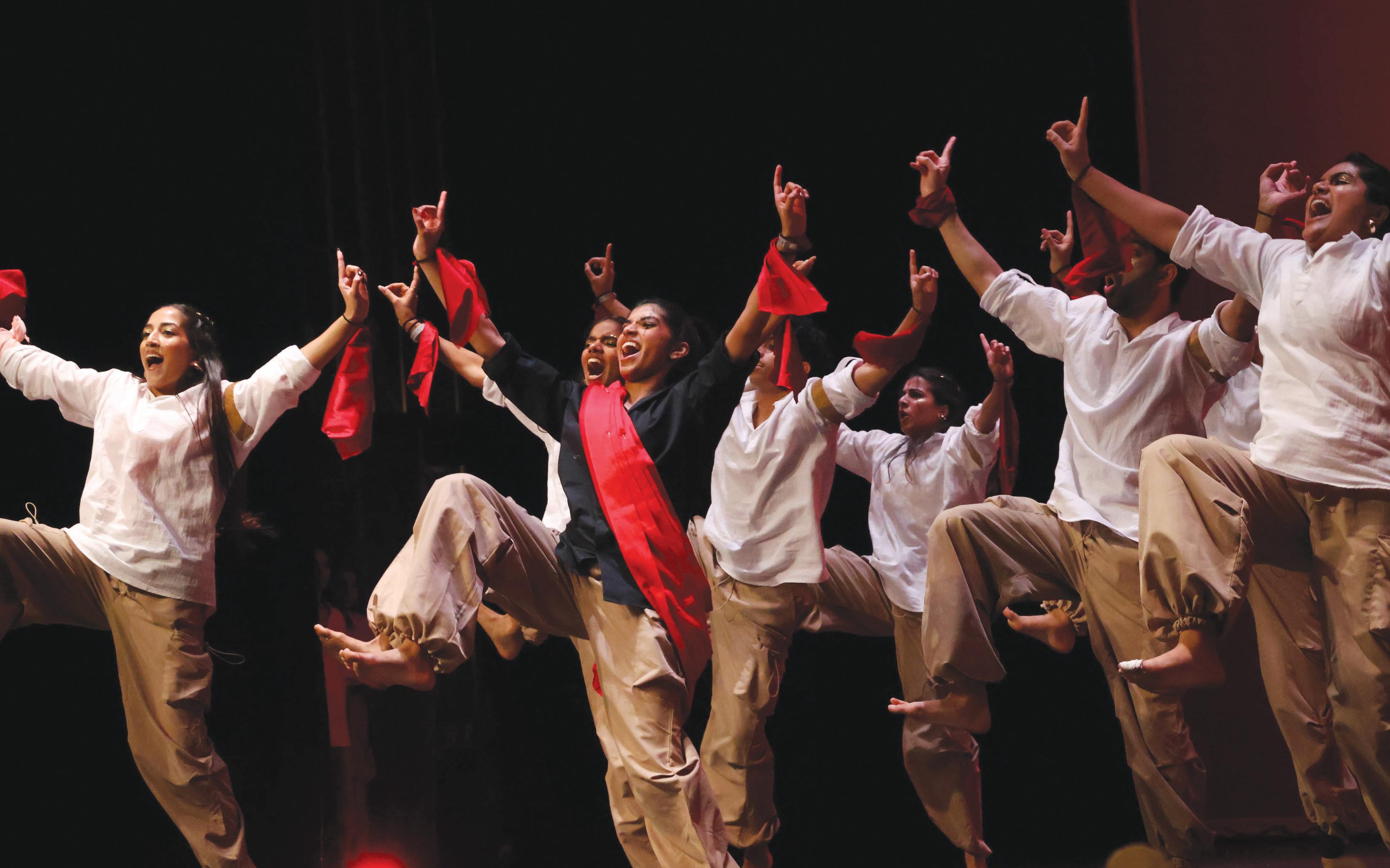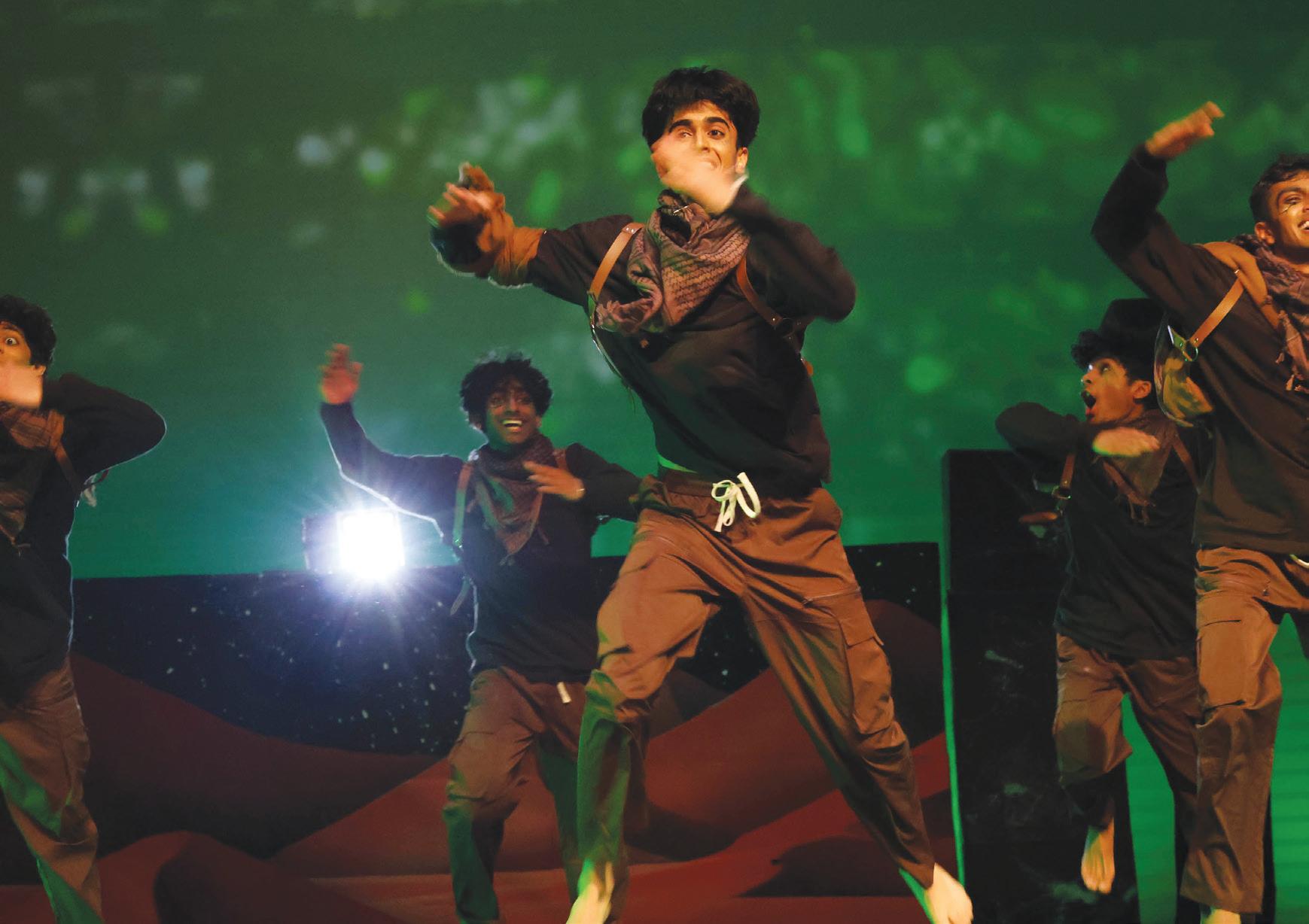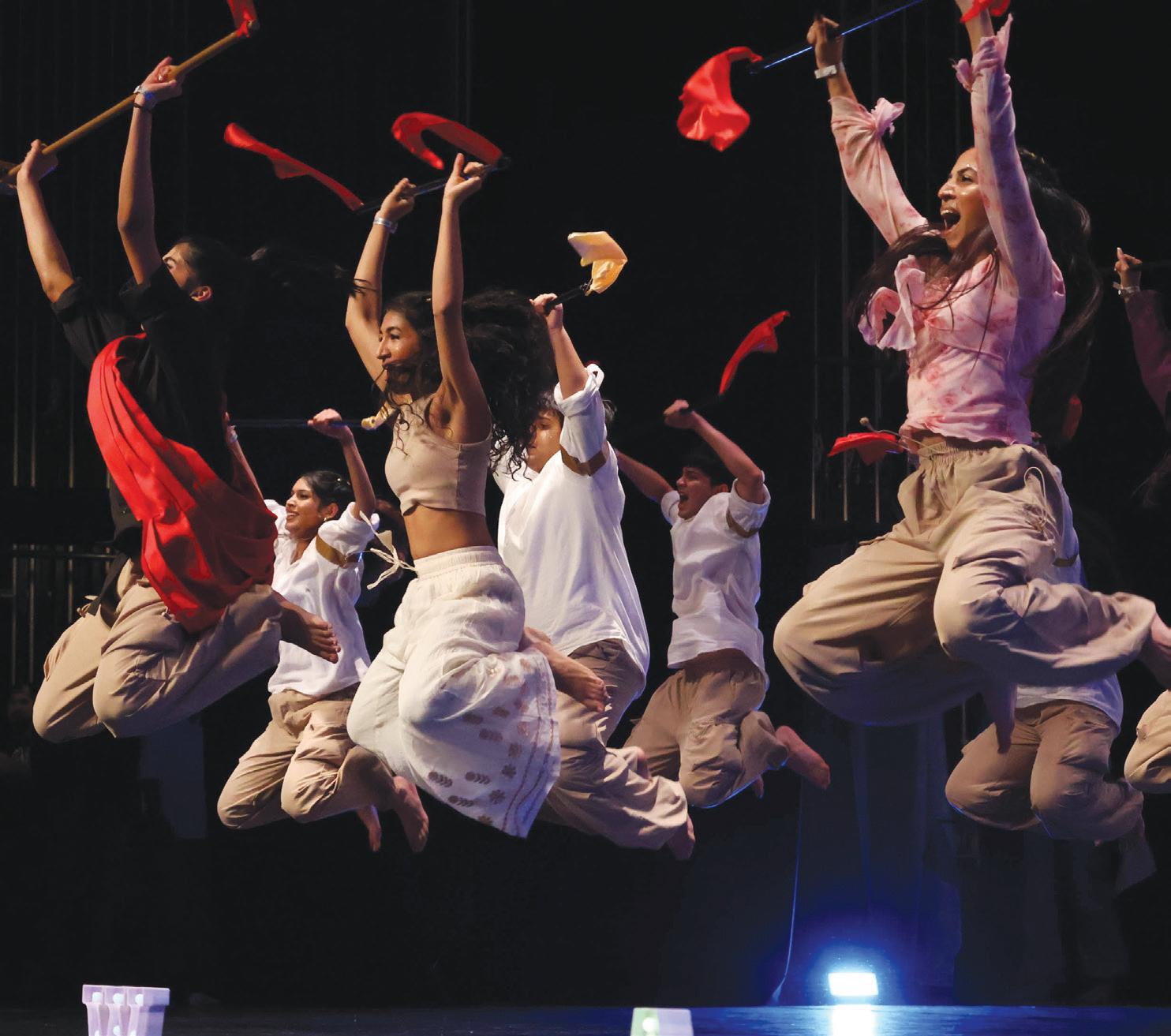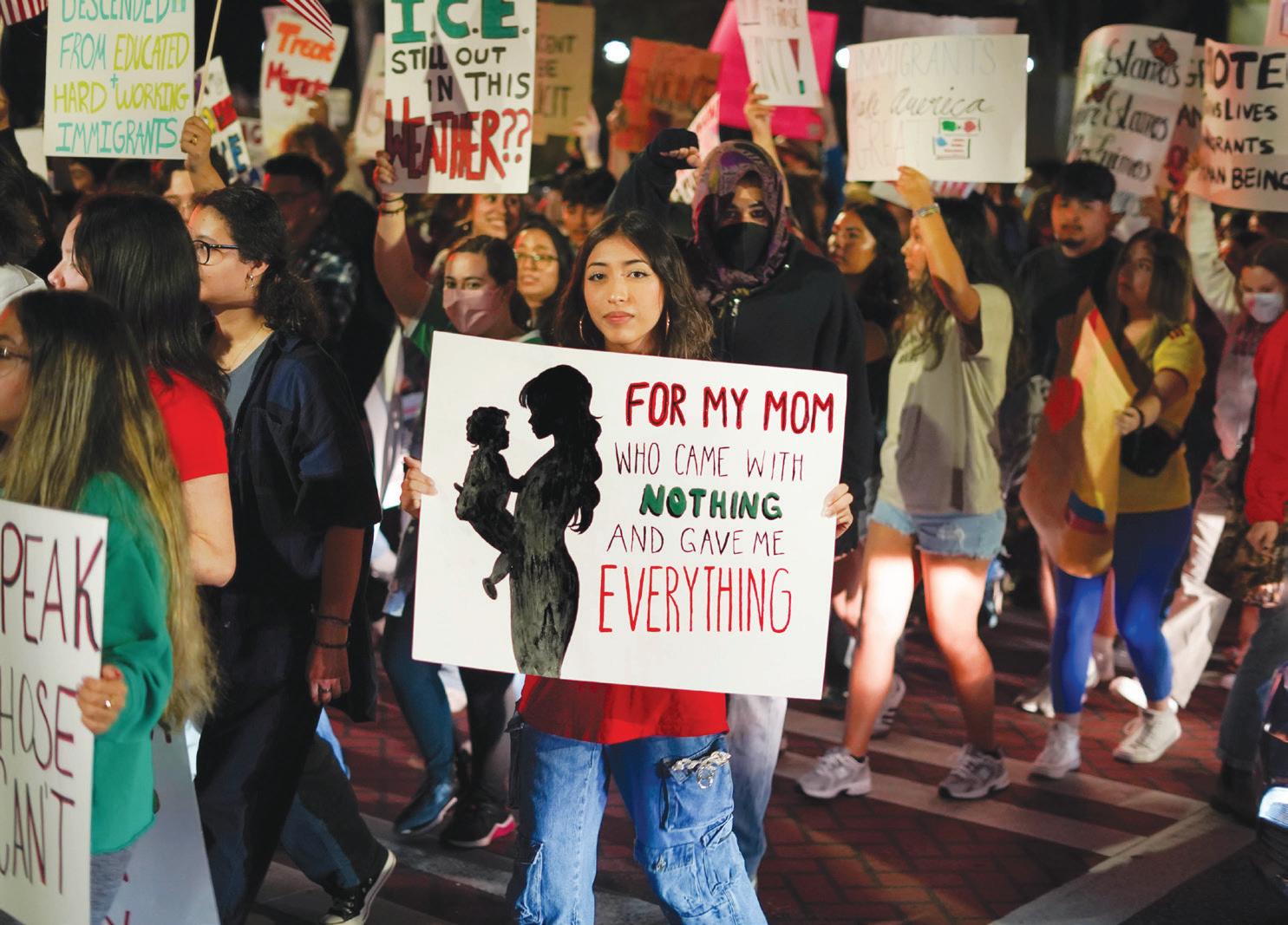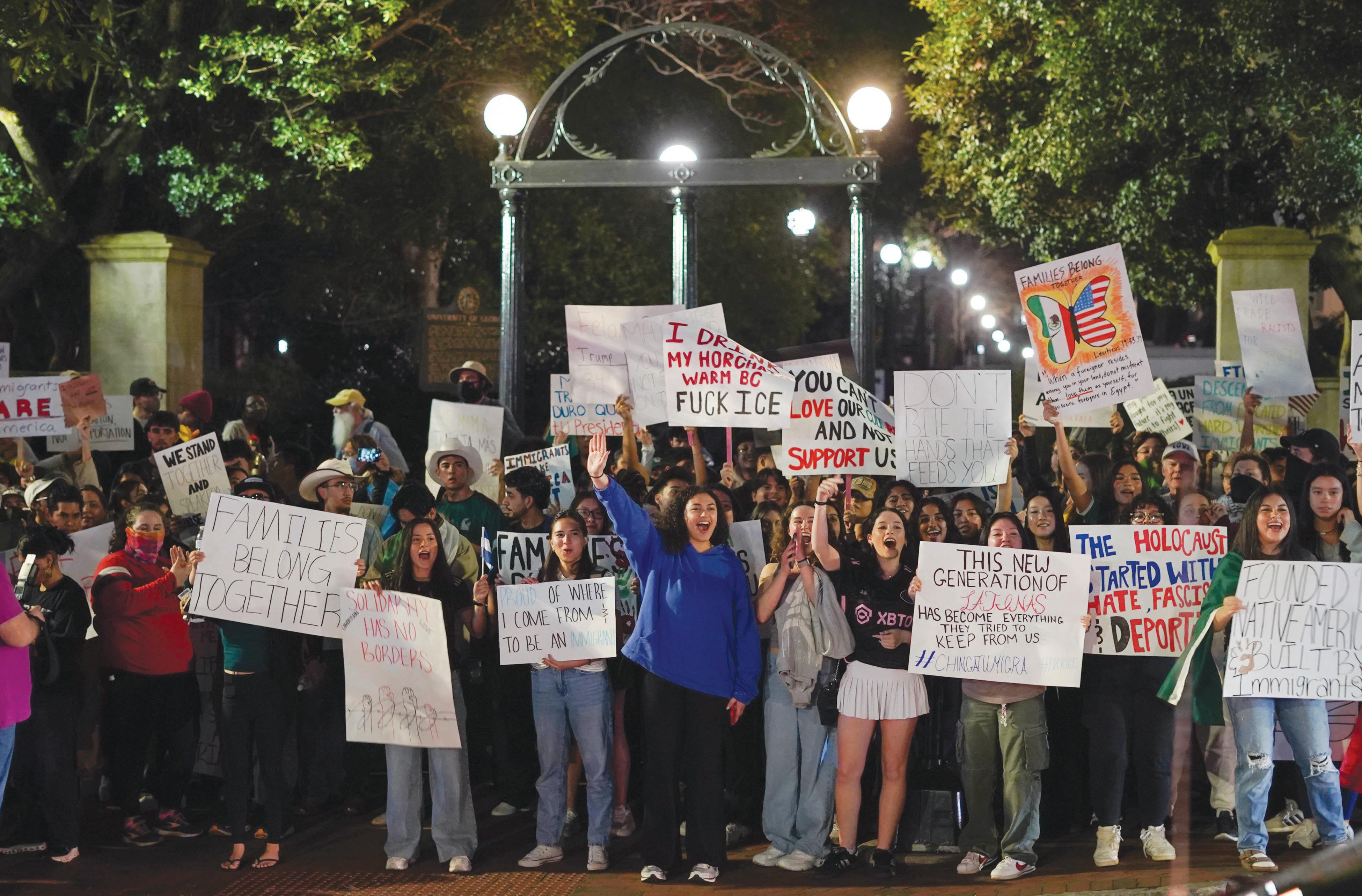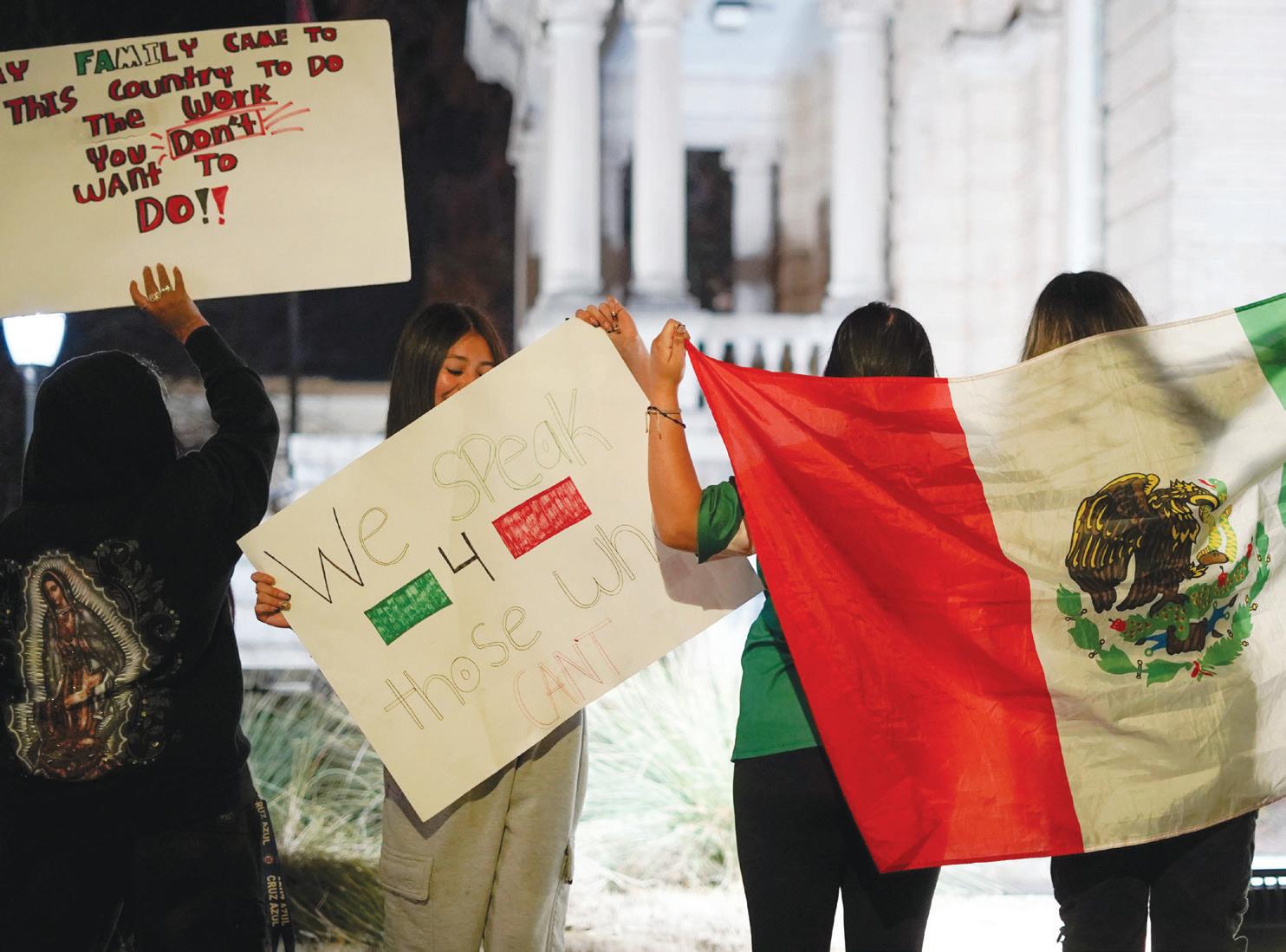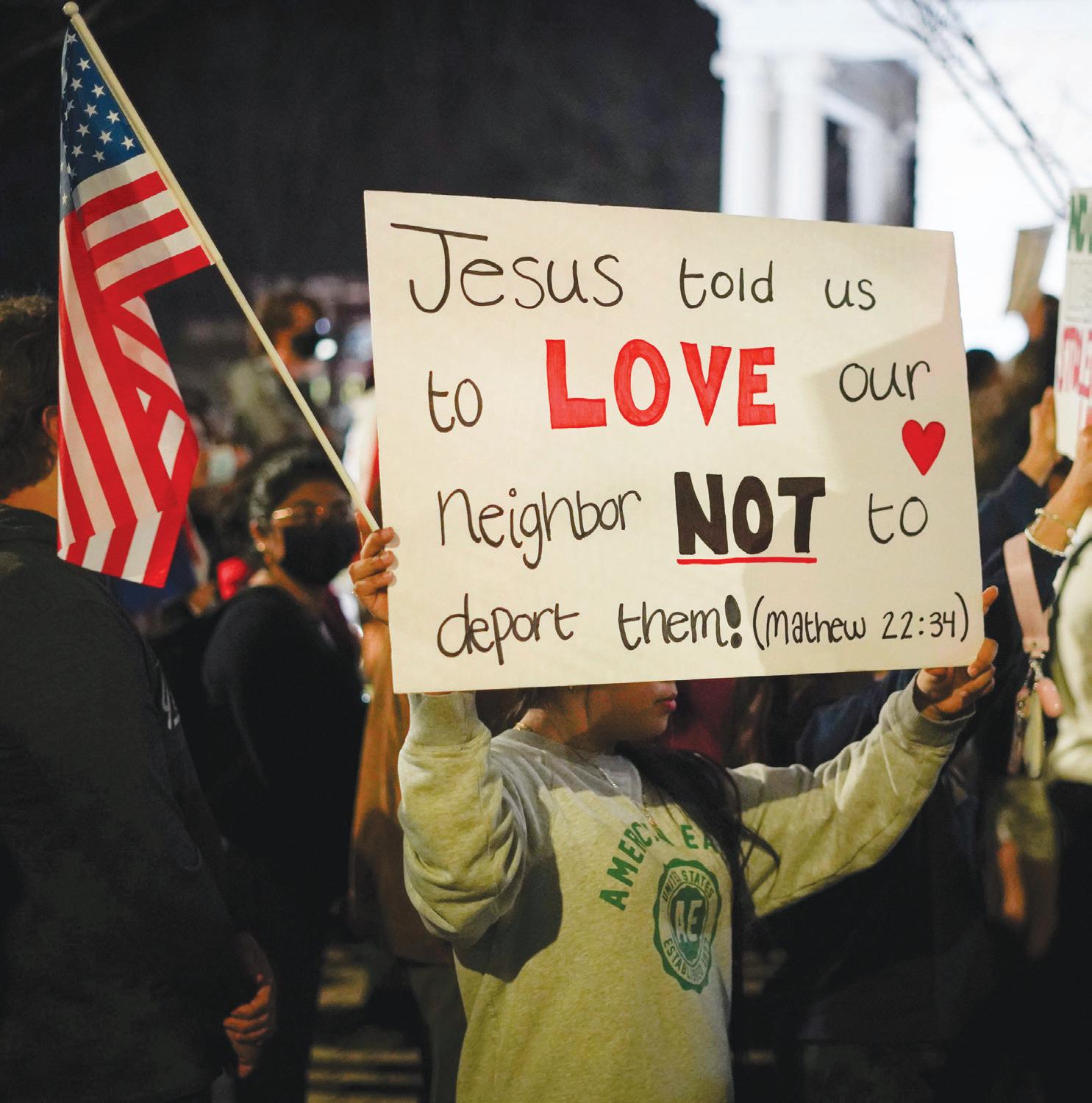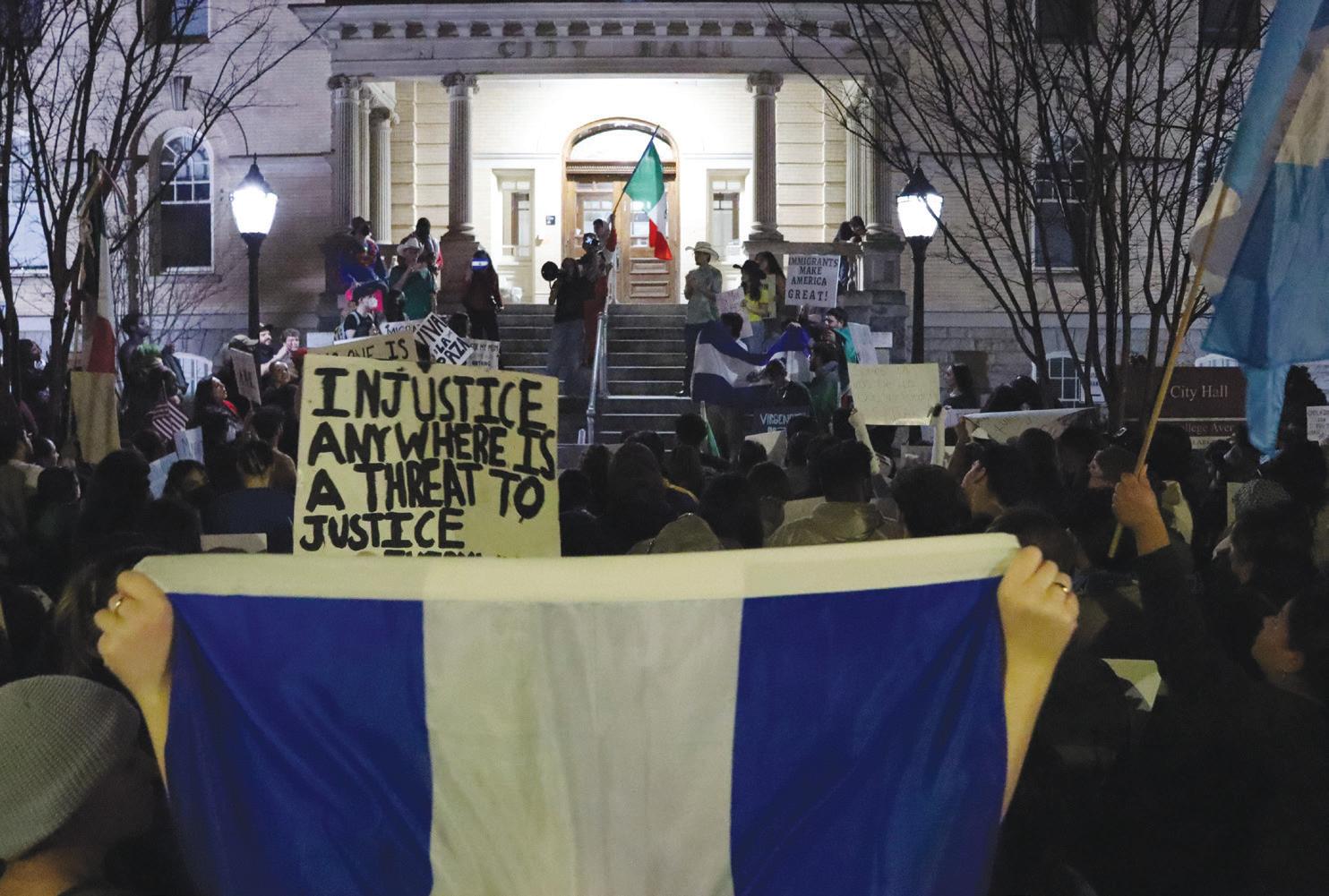












How
Kenia Gonzalez-Chavez was in seventh grade when she volunteered for the first time. One year later, in March 2024, she had the idea for the Athens Period Project, a service initiative that aims to provide women and children with baby and feminine hygiene products.
Helping people has always been in Gonzalez-Chavez’s blood. From the moment she heard stories of her mother growing up without access to basic necessities, to the first time she saw someone’s face light up when she handed them a sanitary pad, she has known that she wants to dedicate her life to serving others.
“It’s like a passion,” Gonzalez-Chavez said. “I’d rather be [volunteering] than being at home, playing through my phone. I’ve met so many people and … it’s been a good experience.”
Gonzalez-Chavez is a ninth grade student at Cedar
Shoals High School, a REACH scholar, a Daughters of the American Revolution Youth Citizenship Award recipient, an Athens Anti-Discrimination Movement Social Justice Champion and the founder of EmpowerMoms Unity, now called the Athens Period Project.
Doing more, helping others Gonzalez-Chavez’s service journey began in middle school when she wrote and mailed out cards to kids with cancer. From there, she began volunteering with local nonprofits, such as U-Lead Athens and the Georgia Youth Justice Coalition.
“I was like, ‘I’m doing something good, but I want to do more,’” Gonzalez-Chavez said.
When Gonzalez-Chavez learned about how her mother grew up in El Salvador with barely enough money for food and a lack of basic feminine products, she knew she wanted to help other struggling women.
“[My mom and aunt] would use toilet paper and newspapers,” Gonzalez-Chavez said.
Gonzalez-Chavez and her best friend began raising money for APP as rising high school freshmen. They sold their old clothes and other items at a flea market, making around $80 on their first visit. This, plus a National FFA Organization grant, was enough to kick start their service project. They used the money to buy pads, tampons and diapers, initially distributing them to mothers in need by going to resource fairs and through word of mouth.
Now, APP has provided 211 children with diapers and other essential baby supplies, and 519 individuals with period and hygiene products. APP partners with elementary schools and nonprofits in Athens to distribute products and expand their outreach. With more recently-earned grant money, Gonzalez-Chavez hopes to begin the process to officially register APP as a nonprofit.
Growing up with immigrant parents has driven Gonzalez-Chavez to dedicate her life to service. After finishing high school, college and eventually law school, she aspires to work in criminal justice or immigration law.
“I feel like it’s my personal life,” Gonzalez-Chavez said. “I want to be there to be able to help after witnessing all that my family has gone through.” Gonzalez-Chavez has been separated from her father and several of her siblings for her entire life, and moved from house to house throughout her childhood. After her brother was deported when Gonzalez-Chavez was in elementary school, she had to move out of her childhood home and lost everything overnight. Her family rented single rooms for the next couple of years, keeping most of their belongings in storage, until settling in a mobile home community a few years later. Gonzalez-Chavez worries about the future for her family and herself under President Donald Trump’s administration.
“Even being a U.S. citizen, it frightens me because all of his remarks of birthright citizenship,” Gonzalez-Chavez said. “I mean, I’m a U.S. citizen because of birthright citizenship.”
Touching the lives of others
In 2023, Gonzalez-Chavez received the REACH Georgia scholarship from the need-based mentorship and college scholarship program that helps first-generation students complete their college education up to a bachelor’s degree. As part of the scholarship, Gonzalez-Chavez was paired with a mentor from the Clarke County Mentor Program, Marilen Rodriguez-Antunez.
Gonzalez-Chavez juggles honors classes, clubs and extracurriculars, community service and running APP, but her workload doesn’t overwhelm her – it excites her.
“She’s a go-getter,” Rodriguez-Antunez said. “She’s not afraid of starting something new or just discovering new ways to interact with other people.”
Rodriguez-Antunez said she is inspired by how Gonzalez-Chavez continues to give back to the community at such a young age – a sentiment shared by the teen’s journalism teacher, Marc Ginsberg.
“Her brain works differently,” Ginsberg said. “In a good way.”
Gonzalez-Chavez is a staff writer for BluePrints Magazine, Cedar Shoals High School’s publication. As a ninth grader, she has published more pieces for the magazine this year than any other contributor, according to Ginsberg. Gonzalez-Chavez is different from other kids her age, Ginsberg explained – she enjoys the work she does, whether that be school, journalism or volunteering, while other kids tend to see it as “unwanted labor.”
“She’s joked that she would like to be the president one day,” Ginsberg said. “If anyone was going to put their mind to it … it would be someone like her.”
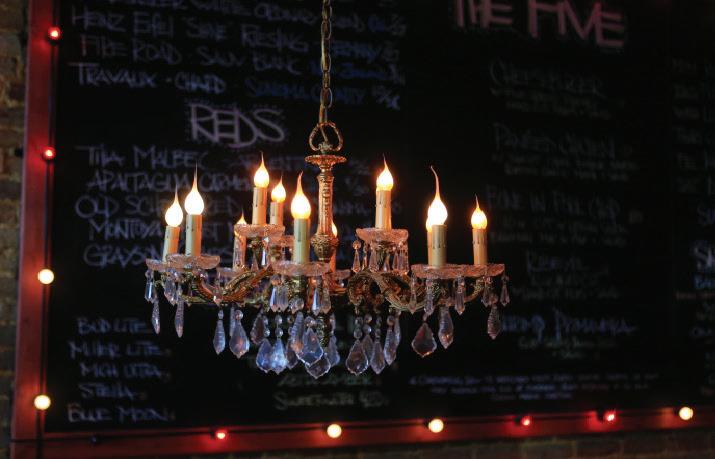





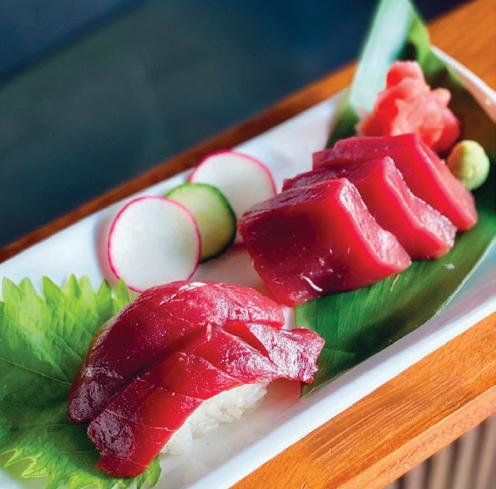



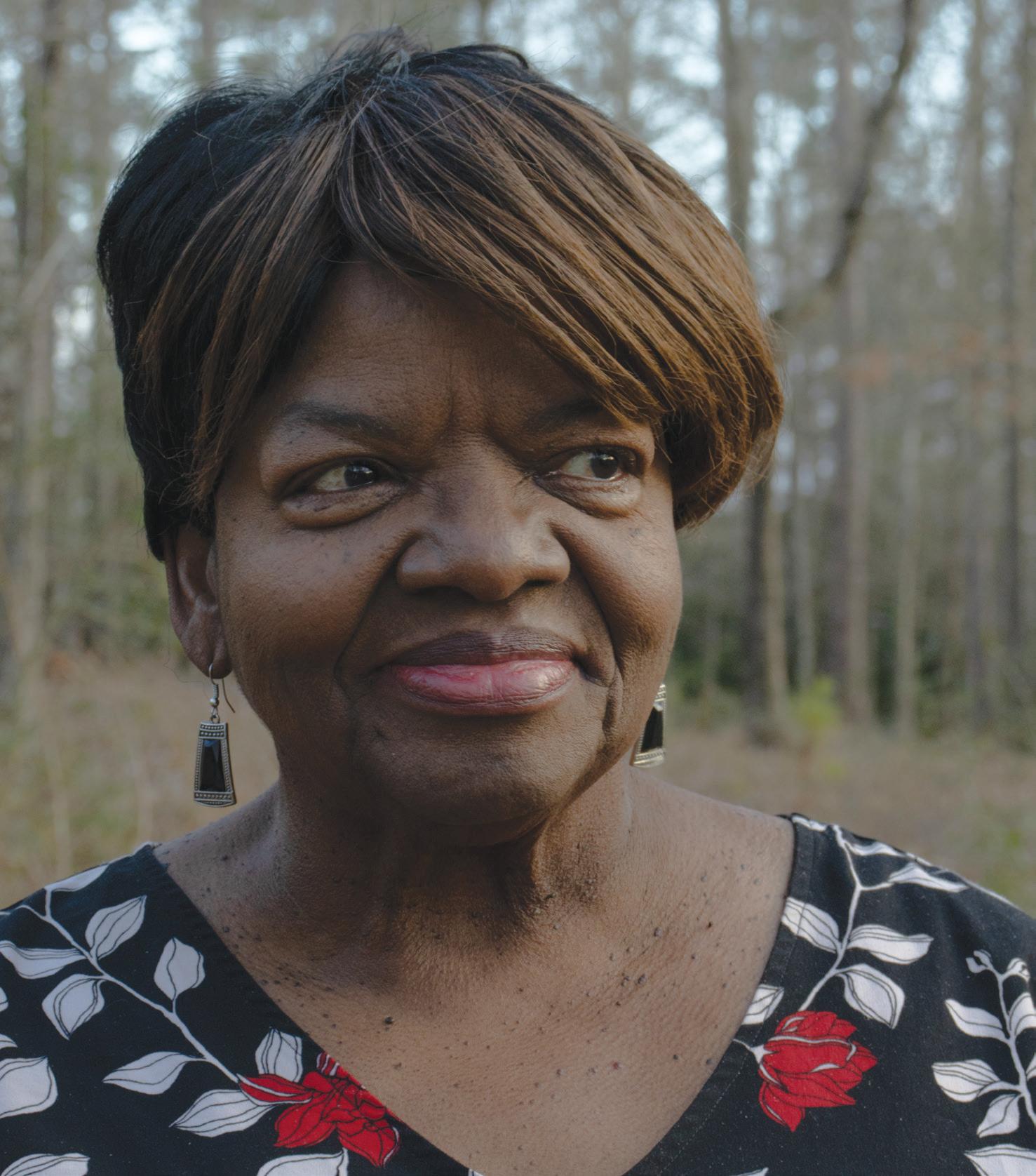
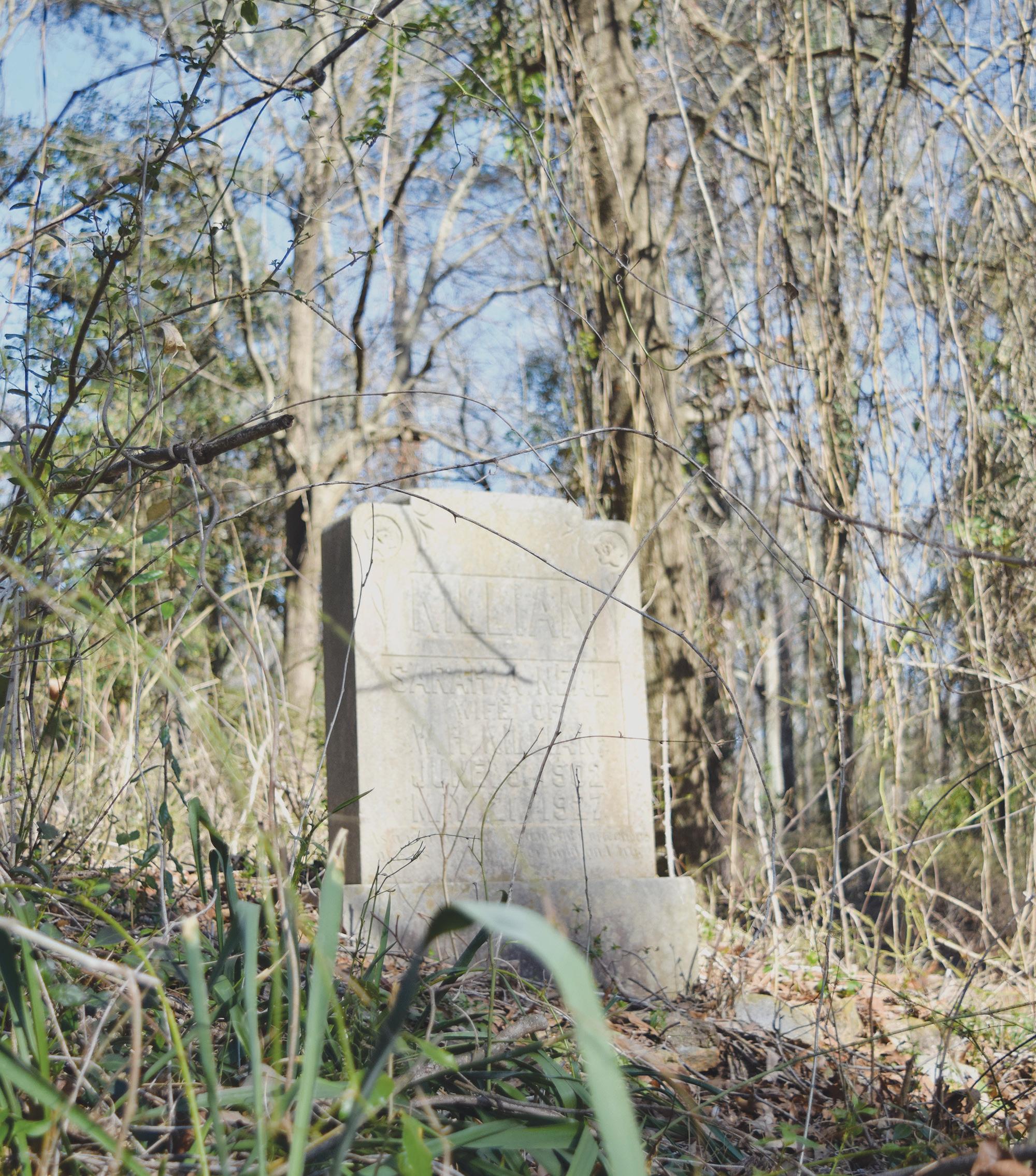
Gone,
A large cemetery stands in a thickly-wooded area in East Athens, almost invisible to those driving by on Fourth Street.
Prominent Black Athenians – such as Morton Theatre founder Monroe Bowers “Pink” Morton and Georgia Legislature member Madison Davis, who were both born into slavery – are buried among approximately 3,500 Black Athenians, including veterans, quilters, school teachers, cooks at the University of Georgia, children and more.
Many of these people do not have headstones; their names have been lost to time. But they all remain together as a community in Gospel Pilgrim Cemetery, and their impact on Athens can still be felt today.
Unearthing the past
Gospel Pilgrim Cemetery was created by the Gospel Pilgrim Society in 1882 to give Black Athenians a final resting place. The society was one of many Black “benevolent societies” that emerged in the late 1700s to provide mutual aid.
The Gospel Pilgrim Society was founded in Athens in the 1870s to ensure that members of the local Black community were “properly and decently interred,” according to the Gospel Pilgrim Charter, which was published in The Banner-Watchman in 1883.
Segregation of the dead was still enforced at this point in history. As the first Black-owned-and-operated cemetery in the area, Gospel Pilgrim created a space for both formerly enslaved individuals and freed people to bury their dead in a place of their own choosing and mourn their loved ones in peace, according to the Athens Death Project.
Until its last burial in 2003, the cemetery spanned 10 acres, expanding through three separate deeds. Approximately 3,500 members of the Black community were buried within its confines, an estimated 20-25% of them being formerly enslaved individuals.
The cemetery, according to ADP, fell into disarray after 1960 as a result of natural disasters, the death of the last surviving member of the Gospel Pilgrim Society and the impact of time itself. By the 2000s, the cemetery was overgrown. In 2002, Gospel Pilgrim Cemetery was declared legally abandoned, according to the National Park Service, turning ownership over to Athens-Clarke County.
Following the unearthing of human remains on UGA’s North Campus in 2016, and historical evidence saying Baldwin Hall had been constructed on top of the graves of the city’s enslaved community, the Athens Death Project was established in 2019 through an effort led by several members of the UGA History Department.
The goal of the project is to explore the past and present of Athens-Clarke County through death records and cemeteries to understand the lasting legacies of slavery and persisting racial and socioeconomic inequalities, according to the ADP website.
Tracy Barnett, a Ph.D. candidate at UGA who served as a researcher and project manager for ADP from 2019-2021, said the available records about the “marginalized individuals” in Gospel Pilgrim Cemetery were more challenging to access than “wealthy white Southerners” who are buried in Oconee Hill Cemetery.
“They have not been preserved in a way that many white cemeteries have,” Barnett said. “It’s definitely interesting to see this common theme throughout the South.”
Only approximately 38% of those interred in the cemetery, about 1,339 individuals, have a grave marker, showing how
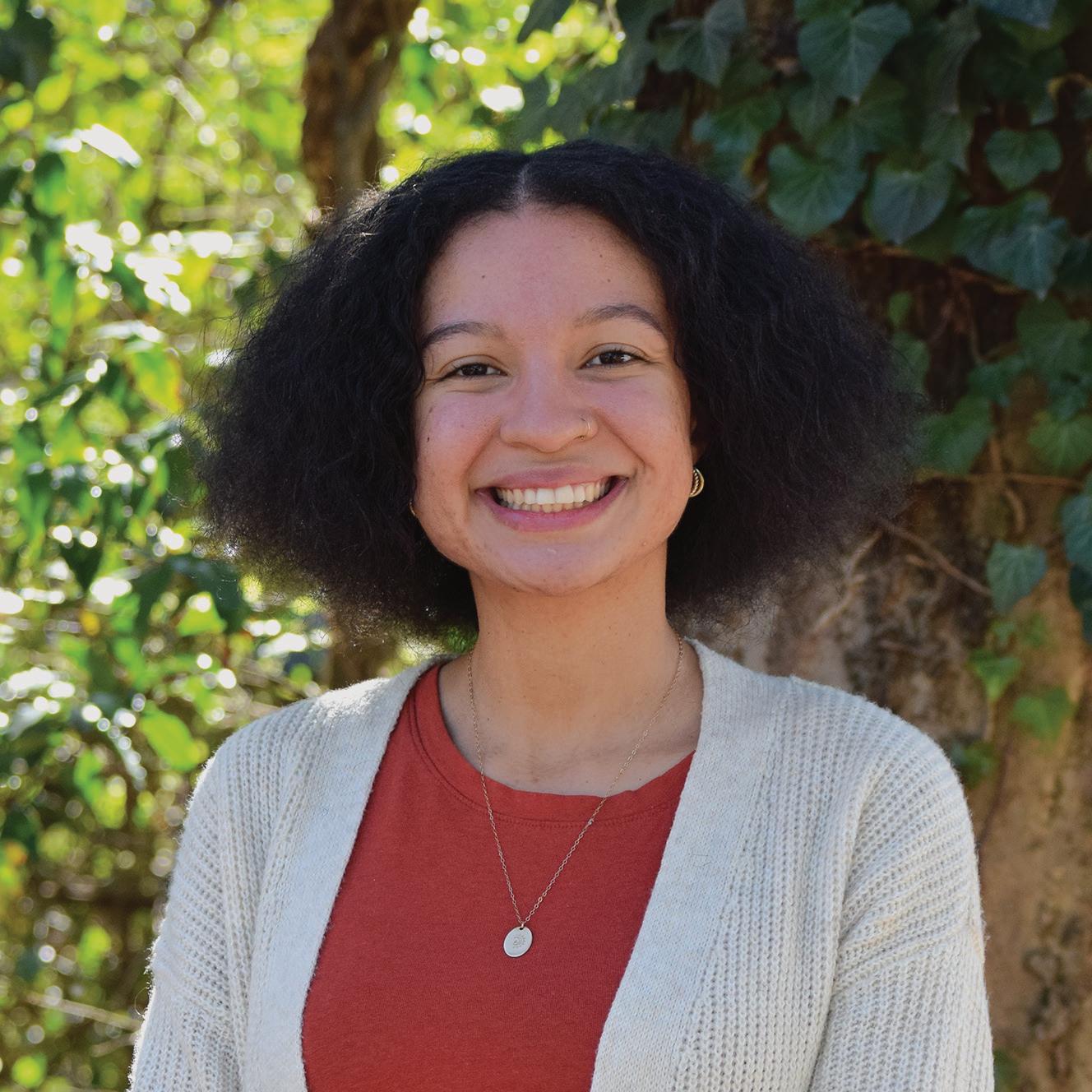
members of the Black community in Athens were marginalized, according to Barnett.
Many graves are without markers because burial insurance was the first “to be taken out and the last to be relinquished when times [grew] hard,” leaving many in the community without an opportunity to be buried properly, according to “To Serve the Living: Funeral Directors and the African American Way of Death” by Suzanne Smith.
“It is, of course, shocking how many folks do not have a gravestone,” Barnett said. “Their names have been lost to time.”
Growth demands change Harriet Powers was born into slavery near Athens in 1837 and spent much of her early life on a plantation owned by John and Nancy Lester in Madison County.
Powers couldn’t read or write, but she could sew. Using oral stories as her guide, she created intricate, colorful quilts depicting stories that now serve as a record of life and events in the 19th century American South.
The state of our Black cemeteries gives us an idea of the fact that we are not as far from the past as we think we are.
DENISE SUNTA | HISTORIC ATHENS ENGAGEMENT COORDINATOR
“Nothing has been easy, historically, for African American people, so quilts play an important role,” Carolyn Mazloomi, the founder of the Women of Color Quilter Network, said. “We all think of Harriet Powers as the mother of African American quiltmaking.”
She was laid to rest next to her husband, Armstead Powers, in Gospel Pilgrim Cemetery in January 1910, and their graves, like many others, were lost to time. But, Peggy Hartwell and Sandy Benjamin-Hannibal, two members of the Women of Color Quilters Network, made it their mission to find the Powers’ final resting place.
The grave’s marker was missing, so Mazloomi decided to pay for a new headstone and a bench, which was revealed in December 2023.
“Every person deserves to have a grave marker, and she absolutely deserved that,” Mazloomi said. “I’m very proud and honored that we could do that for her.”
The calling to preserve, protect and recognize those interred in Black cemeteries in Athens was also strong in Linda E. Davis.
In 2006, Davis received a call from her brother, Karl Scott, who told her about talk of installing a playground in his neighborhood on top of Brooklyn Cemetery, the final resting place of their grandparents, former classmates and other members of their community.
“It’s a sense of possessiveness and a presence of responsibility,” Davis said. “The loss of the spaces that were so integral to my growing up and my becoming the person that I am, the places that gave me a sense of pride, a sense of belonging in a post-segregation era here in Athens, they were gone. It was disturbing to me that it felt like I didn’t belong.”
Davis and Scott founded Friends of the Brooklyn Cemetery in 2006, with the intention of restoring, rebuilding and commemorating the cemetery and those interred within it, according to the FBC website. Davis said that once people saw how much she cared about the cemetery, they started to care, too.
Davis said that after around 12 years of manually removing trees, branches and trash from the cemetery, the cemetery was in good condition, allowing for “new revelations,” such as small grave markers revealed by rain.
“I have a heart passion around bringing dignity and respect to Gospel Pilgrim, as well as Brooklyn Cemetery, so that we can reclaim our ancestors and our children aren’t walking around with no knowledge of who they are or where they came from,” Davis said.
Denise Sunta, the engagement coordinator at Historic Athens, believes that Brooklyn Cemetery’s well-traveled area, in comparison to Gospel Pilgrim’s location in the “historically underrepresented” East Athens, has been a contributing factor to the lack of consistent cleanup efforts at Gospel Pilgrim Cemetery.
“I would love to see that same level of care that’s been devoted to Brooklyn being devoted to [Gospel Pilgrim] as well,” Sunta said.
Historic Athens strives to bring awareness to Gospel Pilgrim Cemetery by hosting Heritage Walks there and shuttle tours through East Athens.
Since Athens-Clarke County assumed ownership of the
cemetery in 2002, few county-level efforts have been made to restore and preserve Gospel Pilgrim Cemetery. In 2008, Project 24 allocated $306,476 to equip the cemetery with benches, pedestrian and vehicular pathways, kiosks and public sidewalks. But, in December 2023, Project 59 was introduced to construct a 12-foot wide greenway trail through Gospel Pilgrim Cemetery, in an effort to “close the equity gap” in Athens-Clarke County by creating access to public facilities, according to a TSPLOST presentation. The project was originally budgeted at $1.5 million. As of February 2025, the project has used 14% of the allocated funds and is still in the planning phase.
“There’s some concern that [the trail] might start to encroach in the cemetery, if it hasn’t already,” Sunta said. “[The cemetery] feels like this big, expansive wooded area, so there’s no way to really know just how expansive it is.”
Davis feels that the Brooklyn Cemetery has benefited from being Black-owned within the Bethlehem Cemetery Society, rather than owned by Athens-Clarke County or UGA, especially after UGA’s treatment of the remains found at Baldwin Hall.
“Taking ownership of the land, that would give people an opportunity to participate in its restoration in a more meaningful way,” Davis said.
Past defines future Davis is a third-generation descendant from slavery in Athens. She grew up a mile from the Brooklyn Cemetery, where her family’s presence can be traced back up to 100 years. The socioeconomic impacts of systemic racism that she experienced as a young girl are still felt in Athens to this day.
“When you look at current issues like our housing crisis or our educational systems … we are still experiencing some of the same problems, just in different ways now,” Sunta said.
The state of Black cemeteries in Athens is a reflection of the role that Black history plays in the community today. Sunta said that, for a long time, there was little value placed in Black cemeteries due to deep racial divides in the South.
“The state of our Black cemeteries gives us an idea of the fact that we are not as far from the past as we think that we are,” Sunta said.
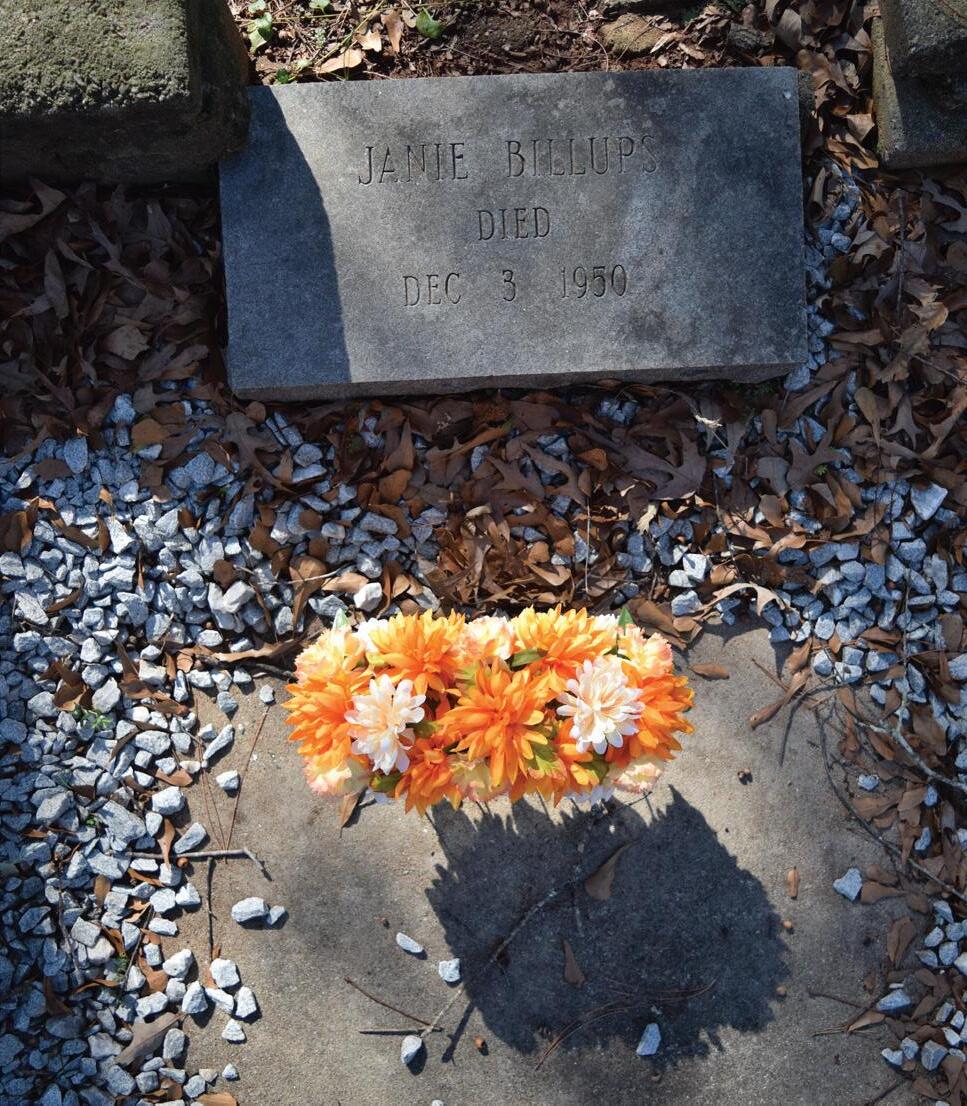
Some believe that dedicating more time and effort to restore and preserve Gospel Pilgrim Cemetery would create an opportunity to learn about Athens’ past. Sunta said there is a lot to gain from cemeteries in Athens, such as past events, buildings, people and cultures, and she believes that the cemeteries should be regarded in an “equitable way.”
“We owe it to our ancestors to keep the cemeteries clean and keep them up,” Mazloomi said. “That’s the least we can do to honor them.”
In the same vein, Barnett believes that many things can be learned from Black cemeteries; as a marginalized community, written records were not always preserved or even created, so the physical space is essential to tell their stories, according to Barnett.
“Until we look at our past, I don’t know how we can understand our present,” Davis said.
What I learned and how I’m healing
Alexia Rule
In 2024, I entered a relationship where I experienced ongoing physical and emotional mistreatment.
I have struggled with back pain and other issues since fracturing my spine in 2020, but I never let it stop me from doing the things I love. Between hiking, running a half marathon, riding horses and going to the gym, being active was an enormous part of my life. But last year, everything changed.
Before I chose to walk away, the relationship pulled me into a mentally darker place than I had ever been, and it had an unexpectedly severe impact on my physical health.
The prolonged strain of isolation, pain and anxiety caused by this relationship completely disrupted my nervous system, taking a significant toll on my body.
The constant violation of my boundaries, coupled with anxiety-filled sleepless nights, only intensified my pain as stress and exhaustion accumulated — not just in my mind, but in my weakened muscles and spine. My hair was falling out, my face broke out and my endocrine system suffered as stress made my hormones imbalanced, causing the most debilitating endometriosis flare-ups of my life. After successfully managing my health issues for years, it was during these four months that I hit my breaking point.
I had a major wake-up call when my primary spine physician compared two MRIs of my lumbar spine: one from a month before the relationship started, the other taken five months later, days before I ended things. As she considered my symptoms and noticed the tangible changes in my musculoskeletal system, she asked if I had been in a car accident or fall at some point between the two scans.
I had not. During this time, I had actually quit all intense physical activity and adopted a sedentary lifestyle in hopes of giving my body a chance at healing – so why was my physical health getting worse?
STUDENT VOICES
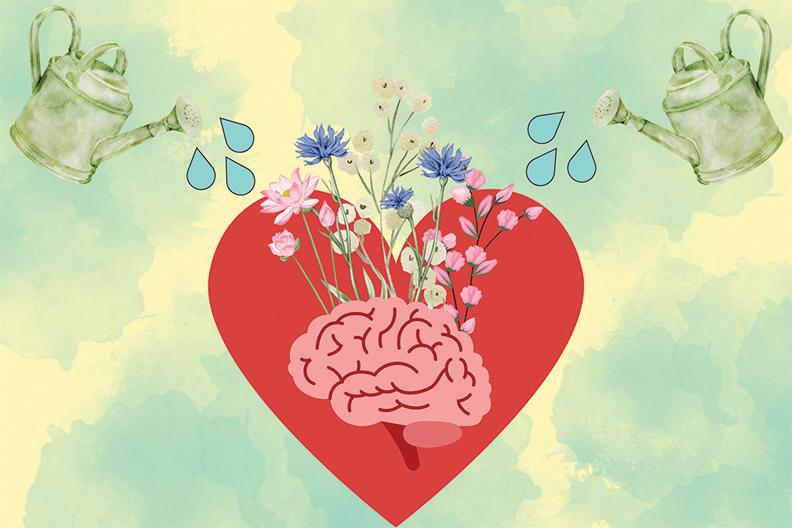
After I explained the level of anxiety I had recently endured, she knew exactly why my health had suddenly declined. She explained to me the impact that mental state has on physical health, and introduced me to a topic I had never heard of before: “psychoneuroimmunology.”
Psychoneuroimmunology is the study of how the mind interacts with the nervous system and how, in turn, both of these systems directly impact the immune system. Each system has a direct influence on the other two, and the proper function – or lack thereof – of each has an impact on our overall health. These three systems are meant to coexist in harmony to keep us healthy and alive.
If you suppress one of these systems, then the other systems will suffer. When the nervous system is on edge, the immune system is too tired or distracted to do its job. The mind and body are deeply interconnected.
Canadian physician and author Dr. Gabor Maté defines trauma not as something external that happens to us, but rather what happens to us internally as a reaction. His research shows that trauma, chronic depression or stress, the suppression of the self and disrespected boundaries can all disrupt the body’s physiological balance and weaken its immune defenses, leading to the development of diseases or injuries over time.
Throughout my past relationship, coercion and exhaustion resulted in me suppressing my nervous system’s protective cues, which were trying to tell me to get out of situations. This weakened my immune system’s healing abilities, leaving my body to face the consequences unarmed.
I cannot begin to count how many doctors I visited during these four months and beyond, searching for
answers about why my body seemed to be turning its back on me. While I was well aware of the mental torment I was living in, I didn’t realize how much that was to blame for my body’s vulnerability. I remember living in so much physical pain and under such a mental fog that I became only a shell of myself. Everything in my life lost its color, and hopelessness told me that I would never heal.
Had I stayed any longer, I’m not sure what would have happened to me, but learning about psychoneuroimmunology gave me the courage to choose to walk away. I realized that without taking care of my heart and mind, there never would have been an end to my physical suffering. My future health was depending on me to be brave in the present, and sometimes, the bravest thing you could ever do is run. While I have had my fair share of doctor appointments, plasma procedures and even a successful first surgery in the past several months, the time I have invested in healing my mind has been equally important. Through therapy visits, focusing on my faith, journaling hundreds of pages and spending time with people I love, my improving mental and emotional wellness have given me the strength to keep going. Fighting for deep healing is far from easy, and certainly isn’t linear, but it is never too late to start. My body, mind and I still have a long way to go, but the ongoing journey of true healing is the most messy, beautiful experience I’ve ever known. If there’s one thing I’ve learned, it’s that it’s worth being brave enough to stubbornly hold onto hope and choose to walk away.
Alexia Rule is a fourth year public relations major at the University of Georgia.
What Athens restaurant would you eat at for the rest of your life?
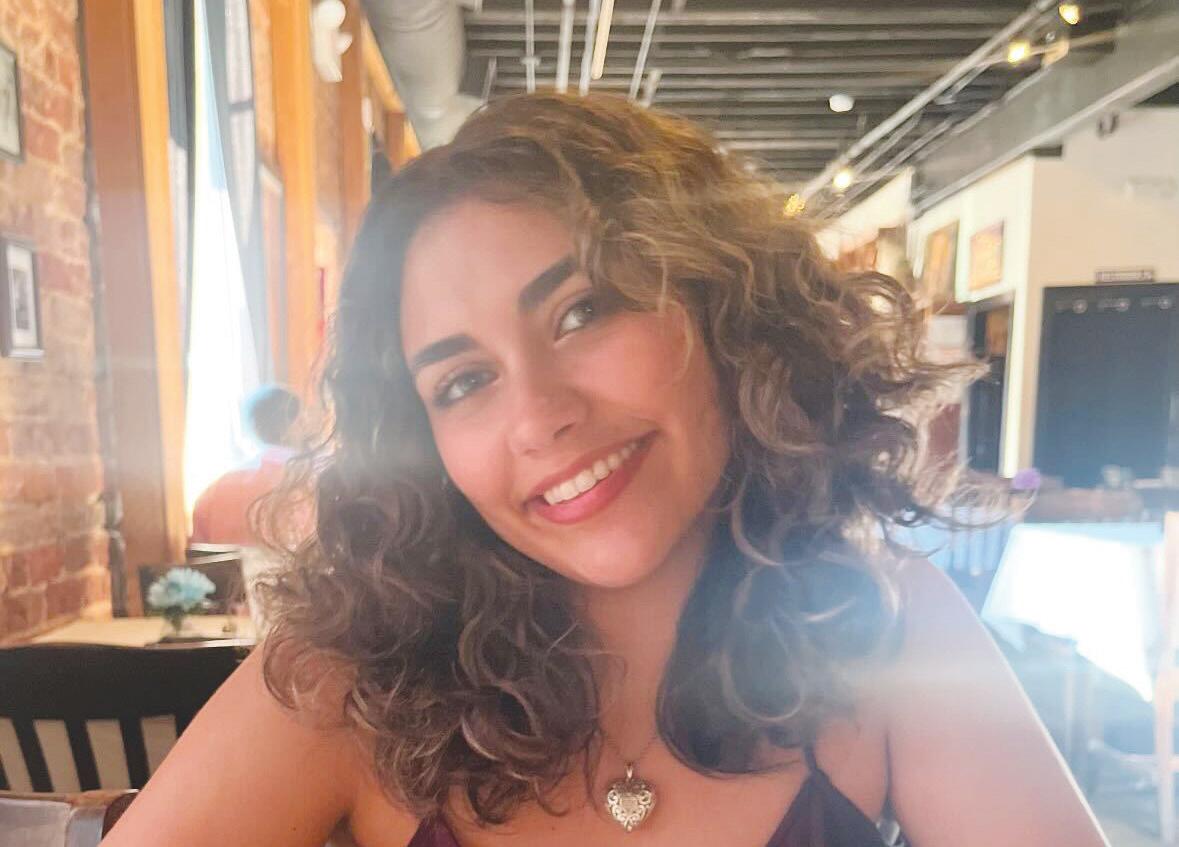
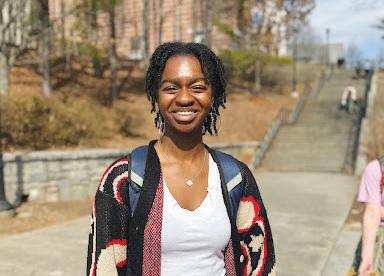
“My
“My
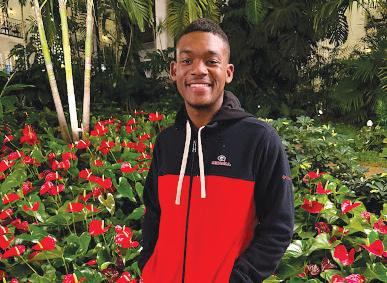
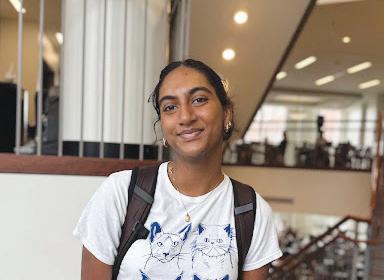
EDITORIAL
“If
“The
DIGITAL MARKETING MANAGER Evie Lewis
SERVICES 706-433-3021 CREATIVE SERVICES ASSISTANT Ashtin Barker
706-433-3009
COMMUNICATIONS MANAGER Alexis Derickson
COMMUNICATIONS ASSISTANT Emma Akang BRAND AMBASSADORS Niki Karafakis, Sydney Toledo
DISTRIBUTION 706-433-3000 DISTRO@RANDB.COM
PROFESSIONAL STAFF
EXECUTIVE DIRECTOR Charlotte Varnum
706-433-3009 | cvarnum@randb.com
CHIEF FINANCIAL OFFICER Melissa Mooney
706-433-3007 | mmooney@randb.com
NEWSROOM ADVISER Kayla Renie
706-433-3026 | krenie@randb.com
MARKETING DIRECTOR Katie Martin
706-433-3012 | kmartin@randb.com
GUIDES & MAGAZINES SUPERVISOR Maddie Daniel
706-433-3046 | adaniel@randb.com
PRODUCTION COORDINATOR Blake Campbell 706-433-3021 | bcampbell@randb.com
Publishing online daily at redandblack.com and in print each month of the academic year by The Red & Black Publishing Company Inc. Subscriptions: $84. All rights reserved. Reprints by permission. Opinions expressed are those of contributors and not necessarily those of The Red & Black Publishing Company Inc. The Red & Black has covered the University of Georgia and Athens since 1893. Independent of the university since 1980, The Red & Black is a 501(c)(3) not-forprofit company with the dual missions of training students for future careers in journalism and serving our community as an independent news source. We receive no funding from the university and are selfsupporting through advertising, events and donations.
In the January print edition, a photo caption on A1 had the incorrect year. This has since been corrected online. As a student-run news organization with the mission of training journalists, we know that mistakes happen and we do our best to correct them as quickly as possible. If you spot a factual error, please let us know by sending a correction to editor@randb.com. Corrections to items in print editions are published in the next possible print issue. Corrections for online-only articles are posted at redandblack.com/corrections.
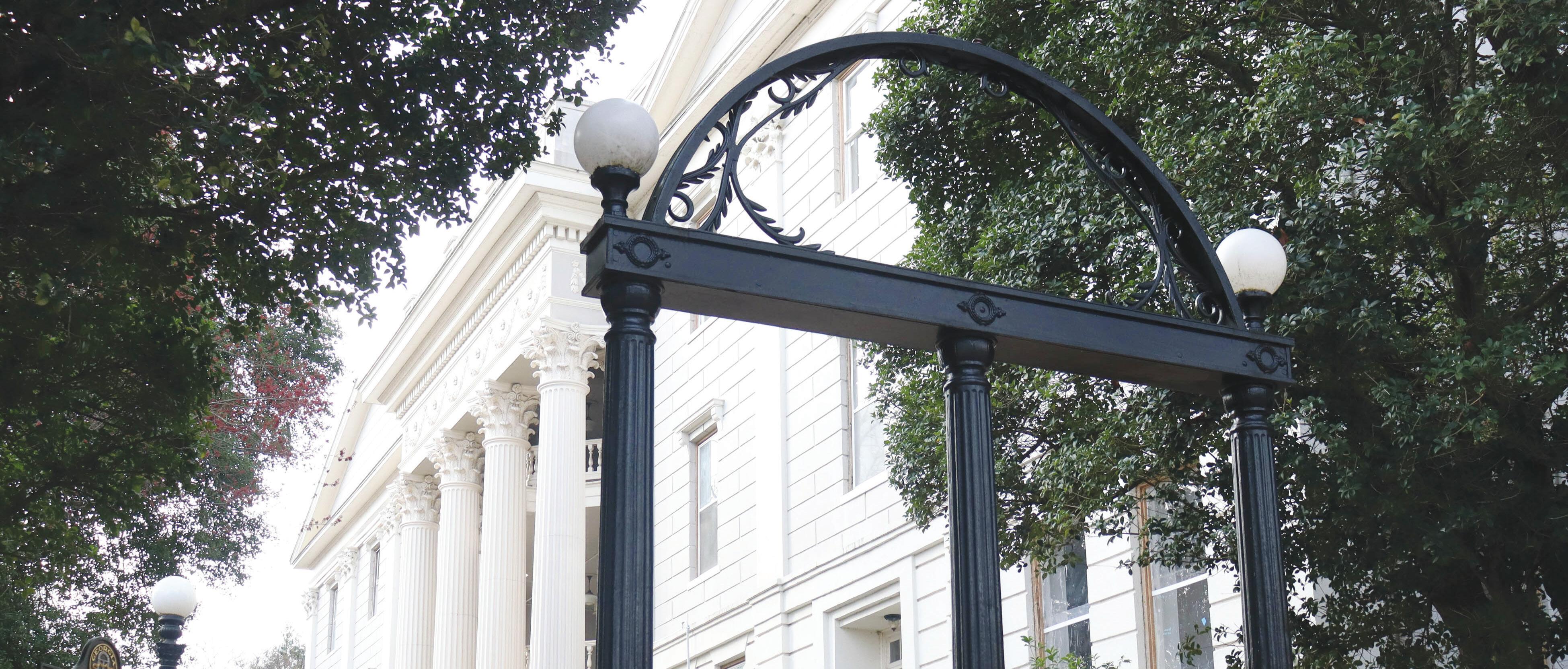
‘Prolonged uncertainty’
UGA releases statement on federal research funding freezes
On Friday, Feb. 7, the University of Georgia issued an official statement on how federal funding freezes may impact research. In the statement, which was also sent in an email to all faculty and staff Friday morning, the university expressed uncertainty but provided key takeaways based on what was currently known.
“We understand that prolonged uncertainty or permanent shifts in agency funding priorities could have significant implications, particularly for graduate assistantships, funding for specific areas of research and scholarship and budgeting,” the statement said. “While the situation continues to be in flux, please know that we are exploring all options.”
This announcement came after President Donald Trump’s flurry of executive orders since taking office on Jan. 20. His orders aimed to curb federal spending on Diversity, Equity, and Inclusion (DEI) initiatives, among other programs. A federal judge issued a temporary restraining order on Trump’s orders on Feb. 3. The ultimate outcome remains uncertain.
UGA’s statement advised faculty and staff to forward any suspension orders, stop work orders or termination orders for sponsored projects to contacts at UGA’s Sponsored Projects Administration. Additionally, they asked to be forwarded any project-specific instructions given to researchers based on DEI, environmental justice and other topics covered under the executive orders, as well as requests to certify that a project does not cover these contested topics.
“Unless notified to the contrary, you should continue to operate your awards as normal,” the email said.
UGA announced on Feb. 5, the university’s research and development expenditures in fiscal year 2024 exceeded $600 million for the first time. Federal research expenditures made up nearly half of this total at $255.1 million. According to the UGA Office of Research, research spending contributes to college rankings and makes up a key part of the university’s multi-billion dollar impact on the economy of Georgia.
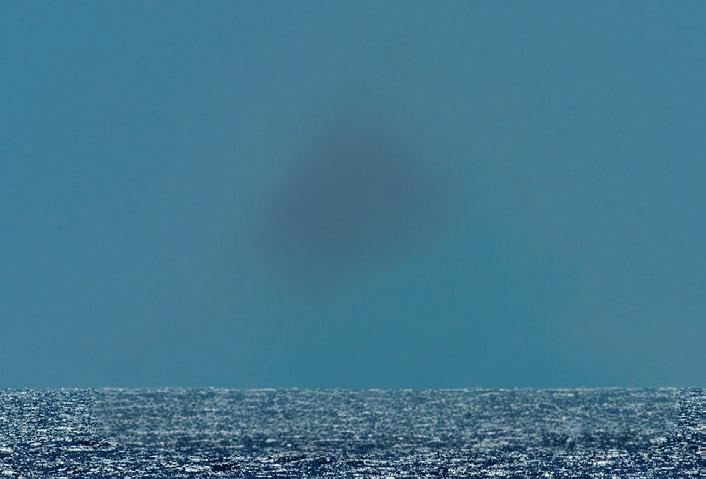

‘Incertidumbre prolongada’
UGA publica una declaración sobre la congelación de fondos federales para la investigación
Alex Music, Traducido por Isa Sucre Pardo
El viernes 7 de febrero, la Universidad de Georgia publicó una declaración oficial sobre cómo la congelación de fondos federales puede afectar la investigación. En la declaración, que también se envió por correo electrónico a todos los profesores y el personal el viernes por la mañana, la universidad expresó incertidumbre pero dió conclusiones claves basadas en lo que se sabía actualmente.
“Entendemos que una incertidumbre prolongada o cambios permanentes en las prioridades de financiación de las agencias podrían tener implicaciones significativas, particularmente para las ayudantías de posgrado, la financiación de áreas específicas de investigación y becas y los presupuestos”, dice el comunicado. “Mientras la situación continúa cambiando, sepan que estamos explorando todas las opciones.”
Este anuncio vino después de la multitud de órdenes ejecutivas del presidente Donald Trump desde que asumió el cargo el 20 de enero. Sus órdenes tenían como objetivo frenar el gasto federal en iniciativas de Diversidad, Equidad e Inclusión (DEI), entre otros programas. Un juez federal emitió una orden de restricción temporal sobre las órdenes de Trump el 3 de febrero. El resultado final sigue siendo incierto.
La declaración de UGA recomendó a los profesores y al personal que enviaran cualquier orden de suspensión, orden de paro de trabajo u orden de terminación de proyectos patrocinados a los contactos de la Administración de Proyectos Patrocinados de UGA. Además, pidieron que se les envíe cualquier instrucción específica del proyecto dada a los investigadores basada en DEI, justicia ambiental y otros temas cubiertos por las órdenes ejecutivas, así como solicitudes para certificar que un proyecto no cubre estos temas en disputa.
“A menos que se le notifique lo contrario, debe continuar operando sus subvenciones con normalidad”, decía el correo electrónico.
UGA anunció el 5 de febrero que los gastos de investigación y desarrollo de la universidad en el año fiscal 2024 superaron 600 millones de dólares por primera vez. Los gastos federales de investigación representaron casi la mitad de este total con 255,1 millones de dólares. Según la Oficina de Investigación de UGA, el gasto en investigación contribuye a la clasificación de las universidades y constituye una parte clave del impacto multimillonario de la universidad en la economía de Georgia.



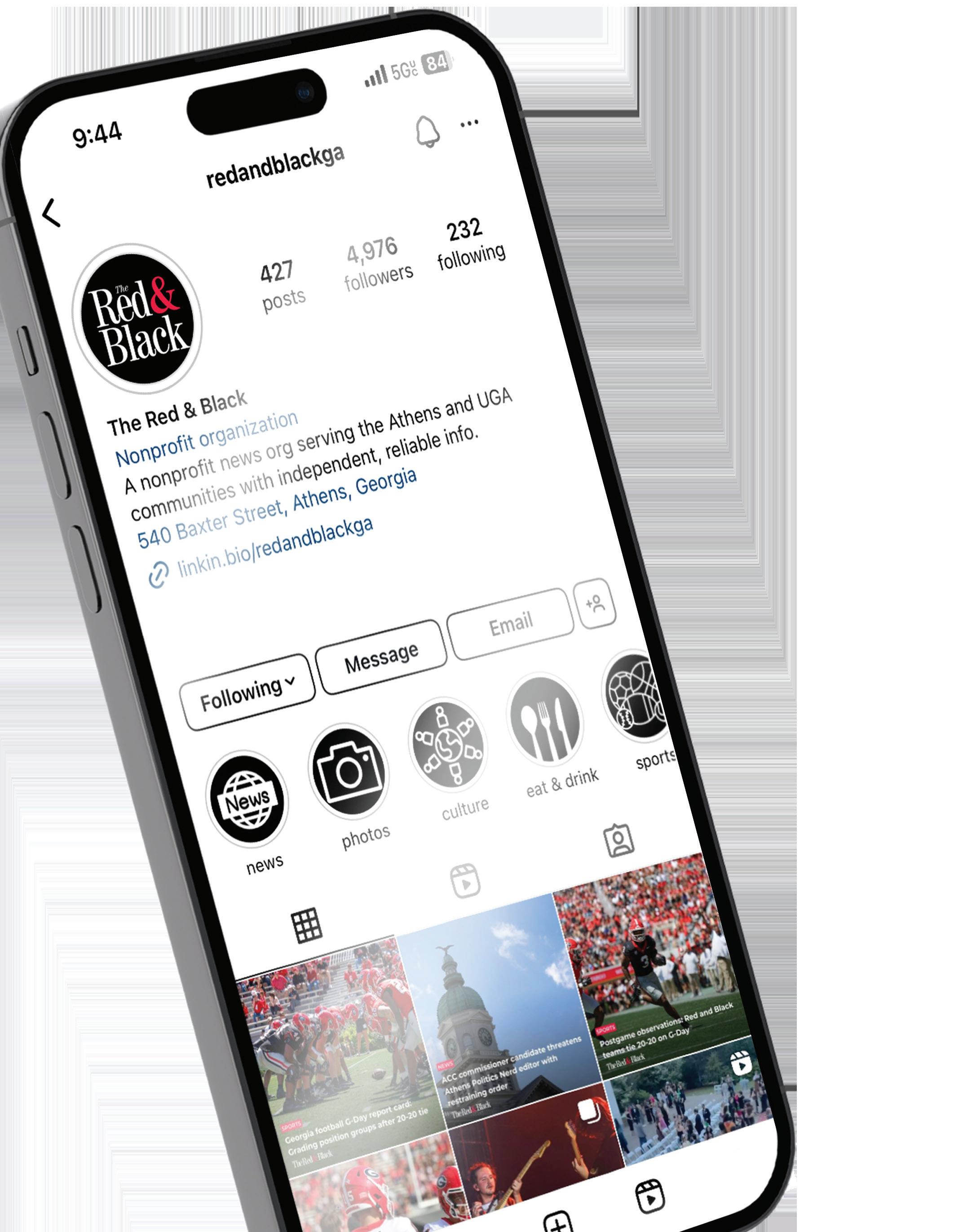















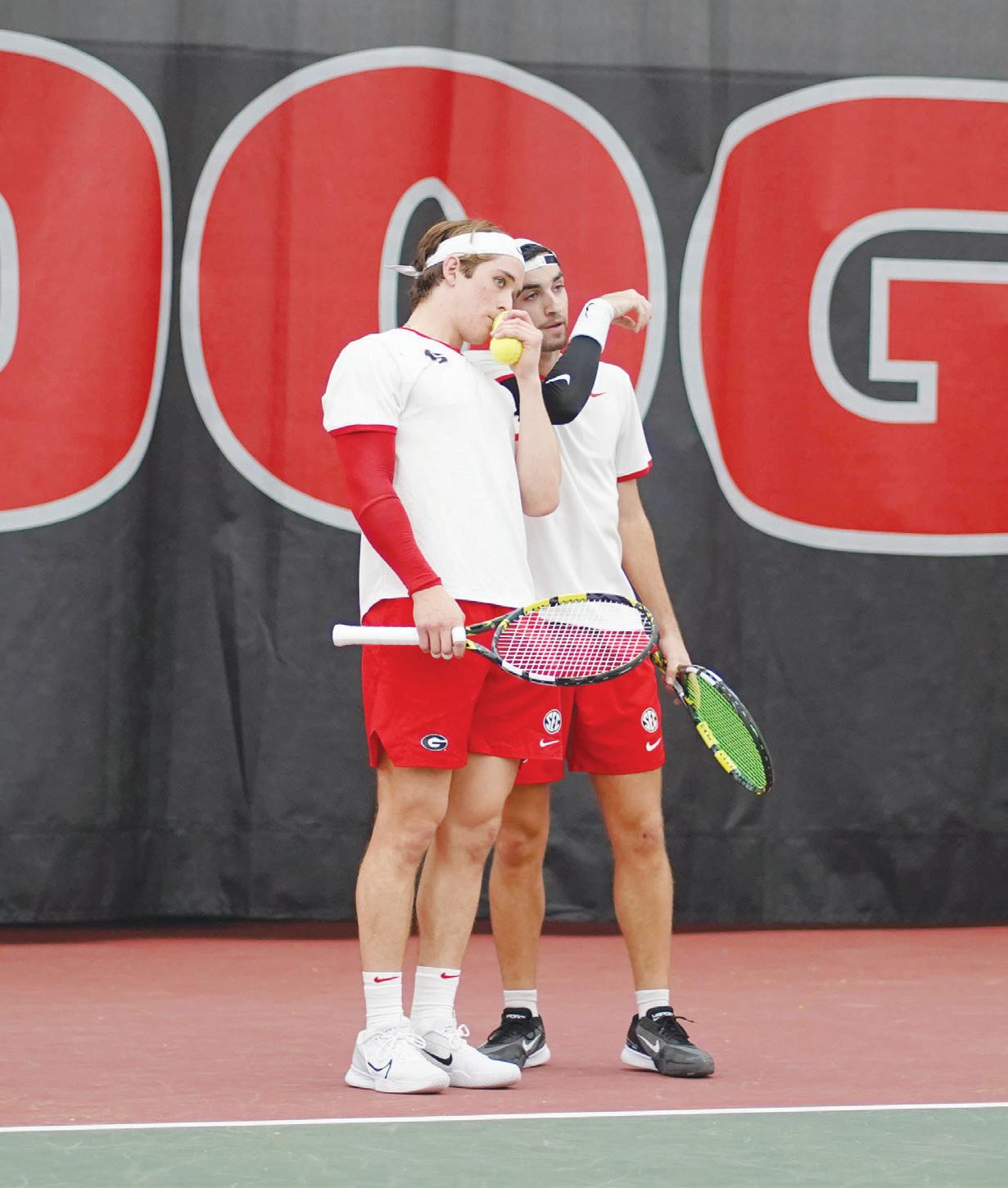
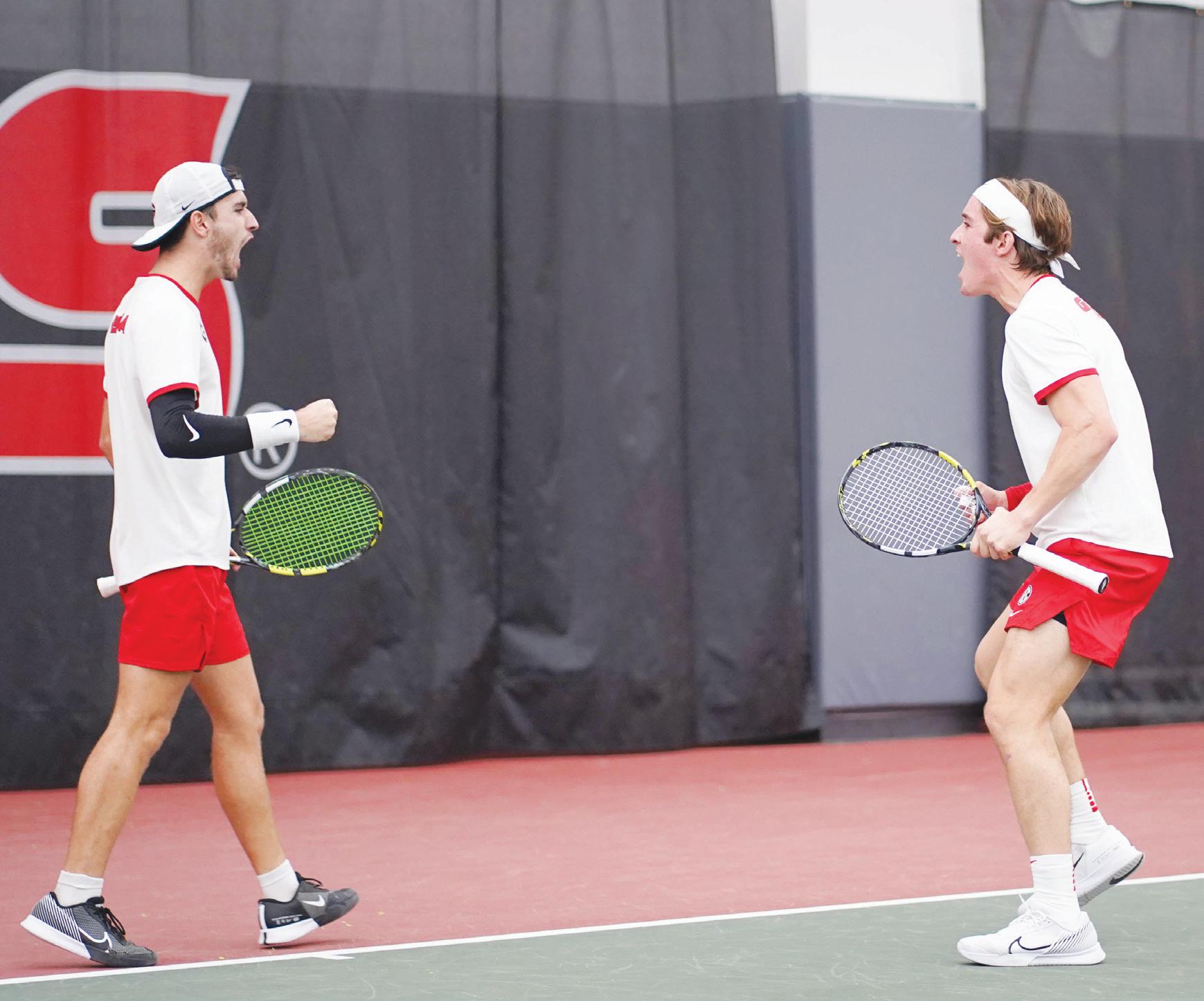
Brady Logan
After years of playing tennis against each other in Spain, Oscar Pinto Sansano and Miguel Perez Peña now share a career-high ranking as doubles partners at Georgia.
The senior duo came in at No. 26 nationally this spring, and their history goes back well before their time in Athens.
Both Pinto Sansano and Perez Peña grew up in Castellón de la Plana, Spain. From a young age, tennis was a staple in both of their lives, and the pair met early in their careers, playing against each other in Spanish youth tournaments.
“We met [at] four or five, six years old,” Perez Peña said. “Tennis is a small world, in our country, in our city, and so we eventually got together on the same tournaments.”
Perez Peña and Pinto Sansano were two of the best players in Spain for their age, continuously finding themselves facing off against each other in the later stages of tournaments.
Despite competitive upbringings, the two began to form a friendship both on and off the court. They began to practice and help train each other when they were not playing against one another, even spending time together off the court.
“Originally, we were playing against each other most of the time,” Perez Peña said. “We just grew up. We would practice together every now and then and get together to

practice, but we would always just play against each other, talk outside the court and spend time together.”
Coming out of secondary school, the equivalent of high school in the U.S., both players were highly scouted and decided to come to the U.S. to play tennis in college and joined rival SEC schools. Perez Peña committed to Georgia as the No. 2 player from Spain, while Pinto Sansano went to Arkansas as the No. 53 junior tennis player in the UTR world rankings. However, the old rivals never faced each other directly.
Perez Peña held a 4-1 record in SEC play for the Bulldogs as a freshman. In his sophomore year, he held a 30-12 overall record, and won the ITA Southeast Regional singles draw the next season as a junior.
In Pinto Sansano’s freshman year, he held a 5-3 SEC record and was ranked as high as No. 36 in doubles and No. 119 in singles. He played in only four matches in his sophomore year, before transferring to Virginia Commonwealth University for his junior season, where he held a 20-5 overall singles record.
As fate would have it, though, the duo could not stay apart forever. Pinto Sansano decided it was time to reunite with his old friend, and transferred to Georgia for his senior season.
The pair seemingly picked up where they left off – spending time together off the court and practicing together


nearly every day. When it came time to set doubles lineups, first-year head coach Jamie Hunt naturally paired the Spanish duo together.
In their first semester playing together, the duo ranked as high as No. 31 nationally. Their breakout moment happened when they took down No. 5 ranked Nao Vukadin and Maxwell Smith in their match against Clemson on Sep. 13, 2024.
“I had so much fun with him, playing with him during the fall,” Pinto Sansano said. “I think we played really good matches. That’s why we have that ranking, because we played really good matches, and we won a lot of them. It’s just special. You’re always just playing with one of your friends right next to you.”
Entering the spring, the pair was broken up for a few matches as Perez Peña played doubles with Niels Ratiu, while Pinto Sansano was paired with Freddy Blaydes. After a lack of success in the new pairings, however, the Spanish duo was eventually reunited. After matches together against North Carolina and Alabama State on Feb. 9, 2025, the duo shot up to No. 26 in the nation, announced on Feb. 5.
“We can talk about anything,” Perez Peña said. “I’m always there for him. He’s always there for me. He’s a really good teammate, definitely one of my best friends here. He’s like a brother to me.”
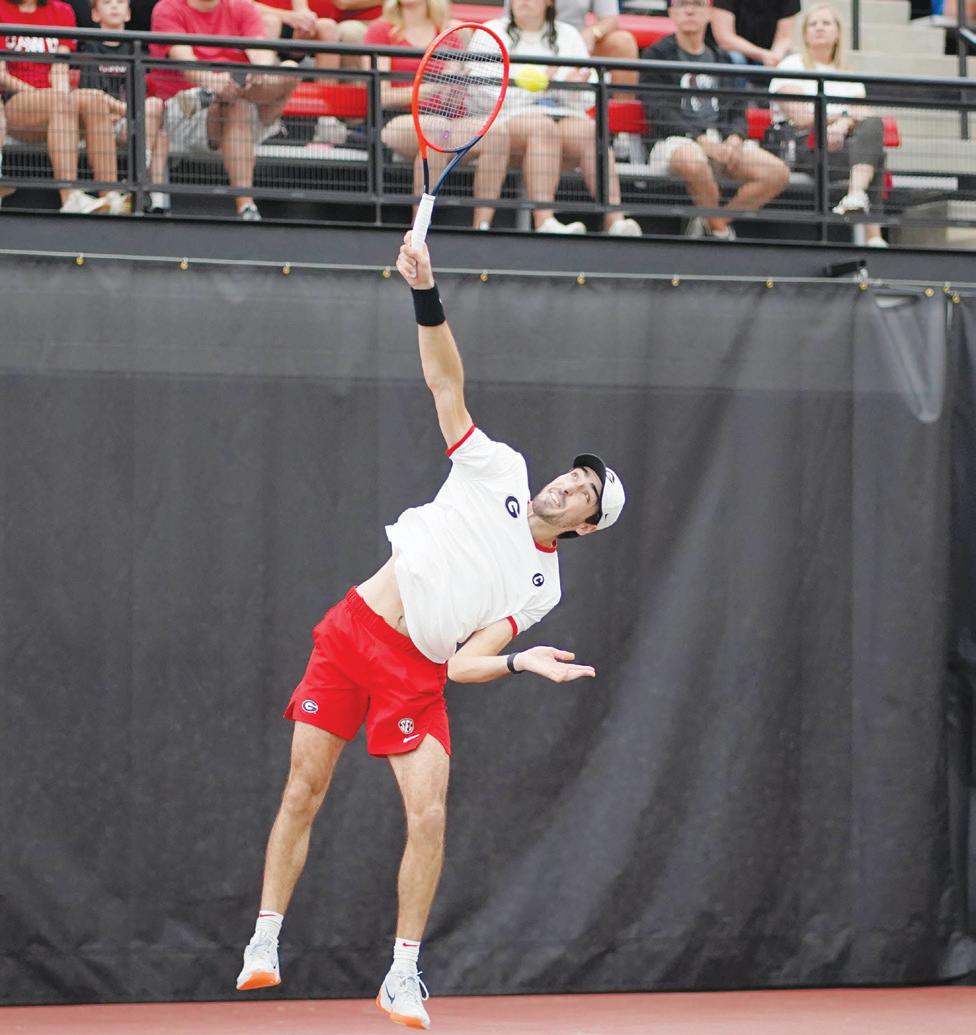
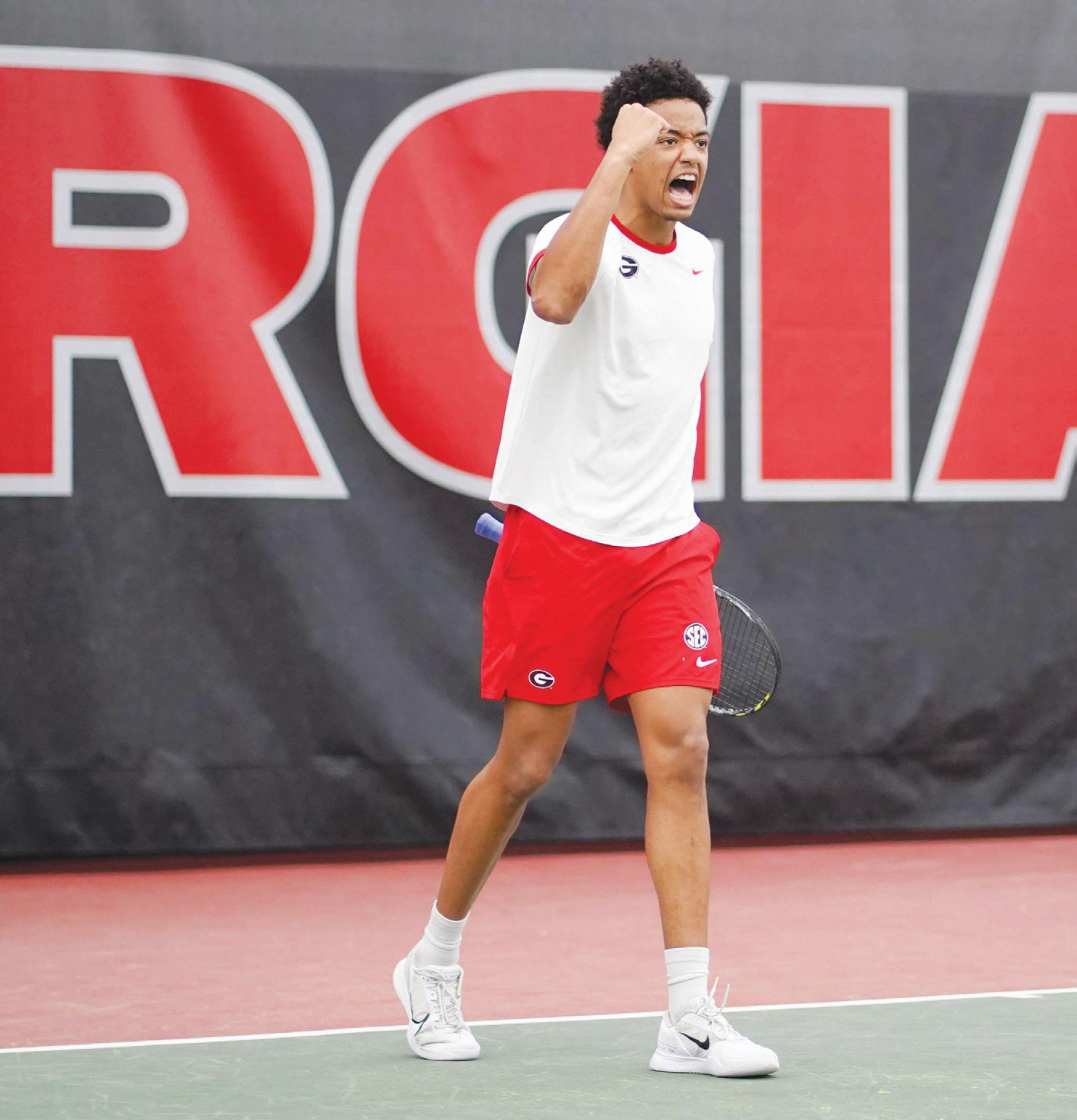
‘We’ve
Owen McDaniel
With Charlie Condon’s record-shattering sophomore year, a 15-inning marathon victory over No. 5 Clemson and a threerun comeback to eliminate Georgia Tech and advance to the program’s first Super Regional since 2008, Georgia baseball’s 2024 season was nothing short of magical. Now, the 2025 team is faced with the complicated task of trying to recreate the magic without the help of some of last year’s biggest stars.
Head coach Wes Johnson and the Bulldogs have embraced that challenge this offseason. Despite a plethora of movement and alterations within the program, several members of the team are confident that the changes are for the better.
New faces, same mindset
Georgia is bringing in 28 newcomers this season, replacing a slew of losses – including the team’s former two best hitters in Condon and Corey Collins. Johnson’s relentless recruitment over the past year not only filled gaps left by the departures, but also possibly made the team more well-rounded than last year.
“We’ve upgraded our pitching staff, and people might say we didn’t upgrade on the offensive side, but I think we did,” junior shortstop Kolby Branch said. “It’s hard to do that from last year, but we’ve upgraded all around, and I’m excited.”
Among the transfers is outfielder Nolan McCarthy, who reached the College World Series with Kentucky last season and believes the Georgia baseball team has the mentality necessary to do the same.
“The teams that don’t believe that they’re going to make it there, they usually don’t go too far, they don’t make it out of regionals,” McCarthy said. “This team, the chatter in the locker room, the chatter in the clubhouse, it’s just, ‘Hey, we’re gonna win it all. We’re the best team in the country,’ and we fully believe that.”
Although there was a lot of turnover from last year’s roster, there is a core group that returned for another season with the Bulldogs. Key returners include Branch, Tre Phelps and Slate Alford, and pitchers Leighton Finley, Kolten Smith and Charlie Goldstein.
“From last year, we got some guys coming back that can show [the new players] the ropes and teach them how we play baseball and what our style of baseball is,” Branch said. “It maybe takes a fall for them to get used to it, but we play hard; we’re playing for homers, we’re playing for strikeouts, we’re playing for each other, and when everyone is behind that, it becomes a good team.”
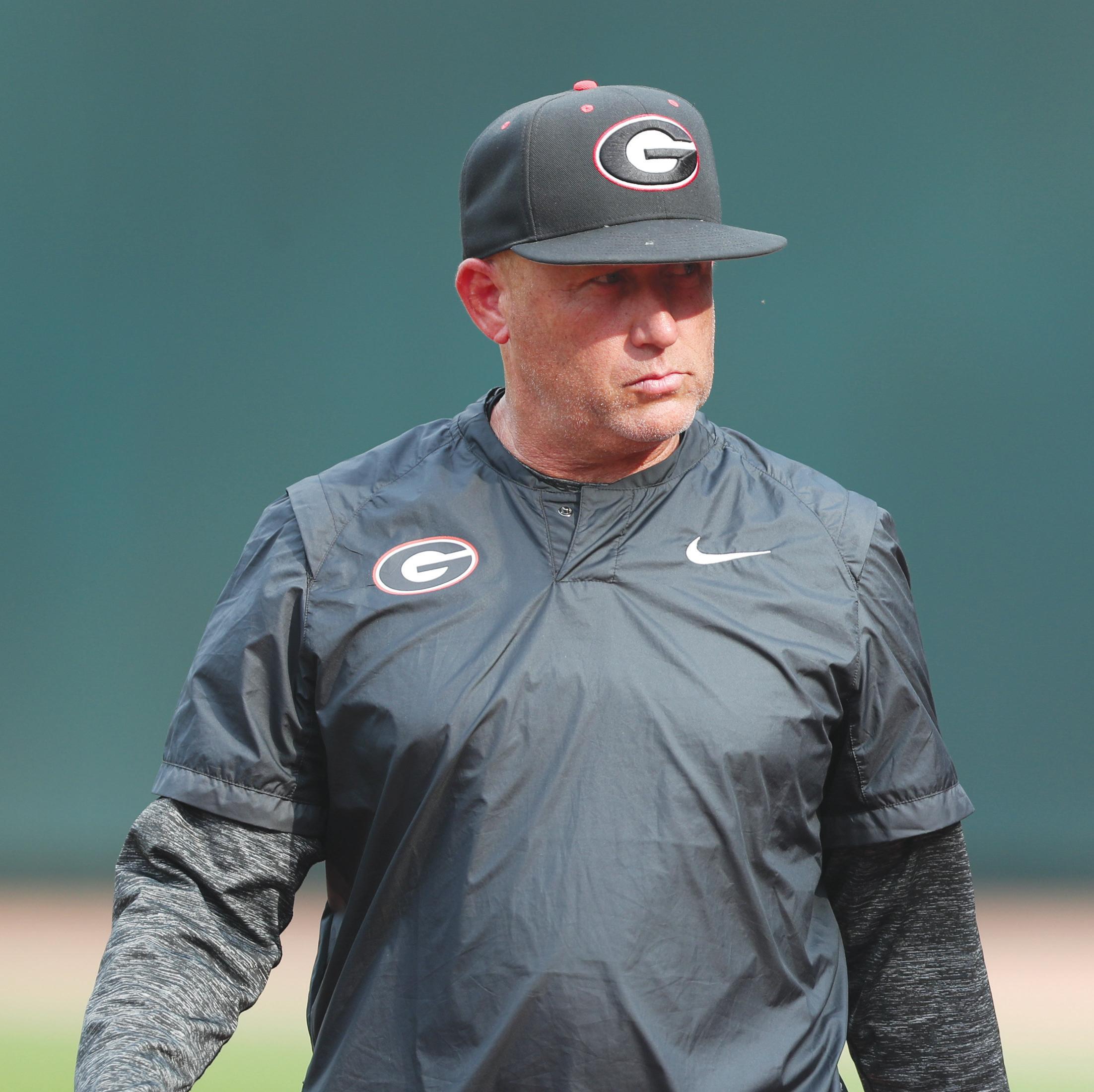
Exceeding underestimations
Not many people outside of the program expected Georgia to reach the heights it did last season. The 2024 SEC Preseason Coaches Poll had Georgia finishing sixth in the SEC East, and named only one player, Condon, to an AllSEC team.
This season, the same poll again predicted the Bulldogs will place sixth in the conference, while three players –Phelps, Alford and Alton Davis II – made All-SEC teams. Additionally, Phelps, Smith and Brian Curley were named to various All-American teams. Georgia baseball has been ranked in all five preseason top 25 polls, earning a spot in the top 10 in three of them.
Despite all the recognition, Johnson is cautious of reading into it.
“That just means you’ve got a chance to be good,” Johnson said. “That’s what all the preseason hype is, now you gotta go do it. It’s our league, you’re not gonna hide anywhere in this league. If people think you’re supposed to be good, they’re gonna give you publicity and so forth.”
Not just upgrading the roster
In addition to the changes to Georgia’s roster, Foley Field was upgraded over the offseason, adding a new weight room, a player’s lounge, a pitching lab and an AstroTurf playing surface. Branch said that the team has played a few scrimmages on the new surface, and he can already feel the difference.
“I know exactly how [the ball is] gonna bounce,” Branch said. “If it takes a bounce in a certain area, I know how many hops I need to get before I go attack the ball.” There are also some new standing-room and seating areas down the left field line, next to the home bullpen, to help fans feel closer to the game and enhance their experience. Although Georgia has undergone a makeover during the offseason, the team believes that if it sticks to its culture and trusts its preparation, it can exceed last season’s success — and maybe even make a deep run at the College World Series in Omaha.
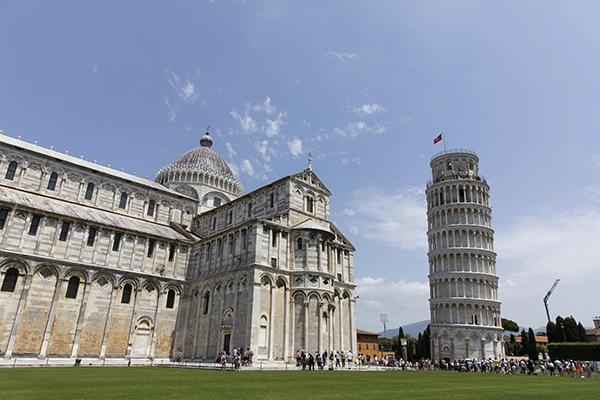




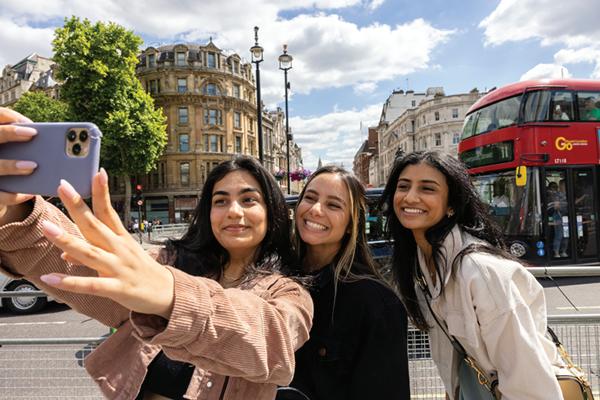
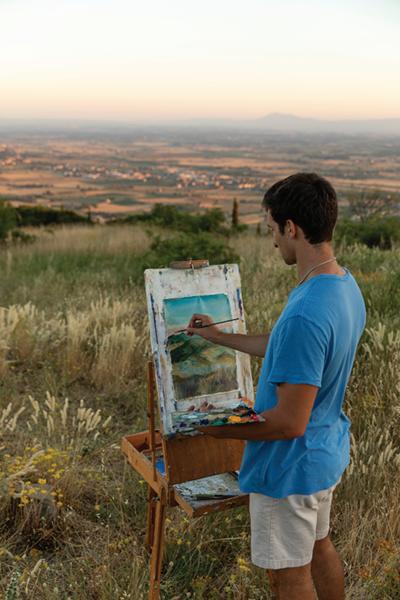
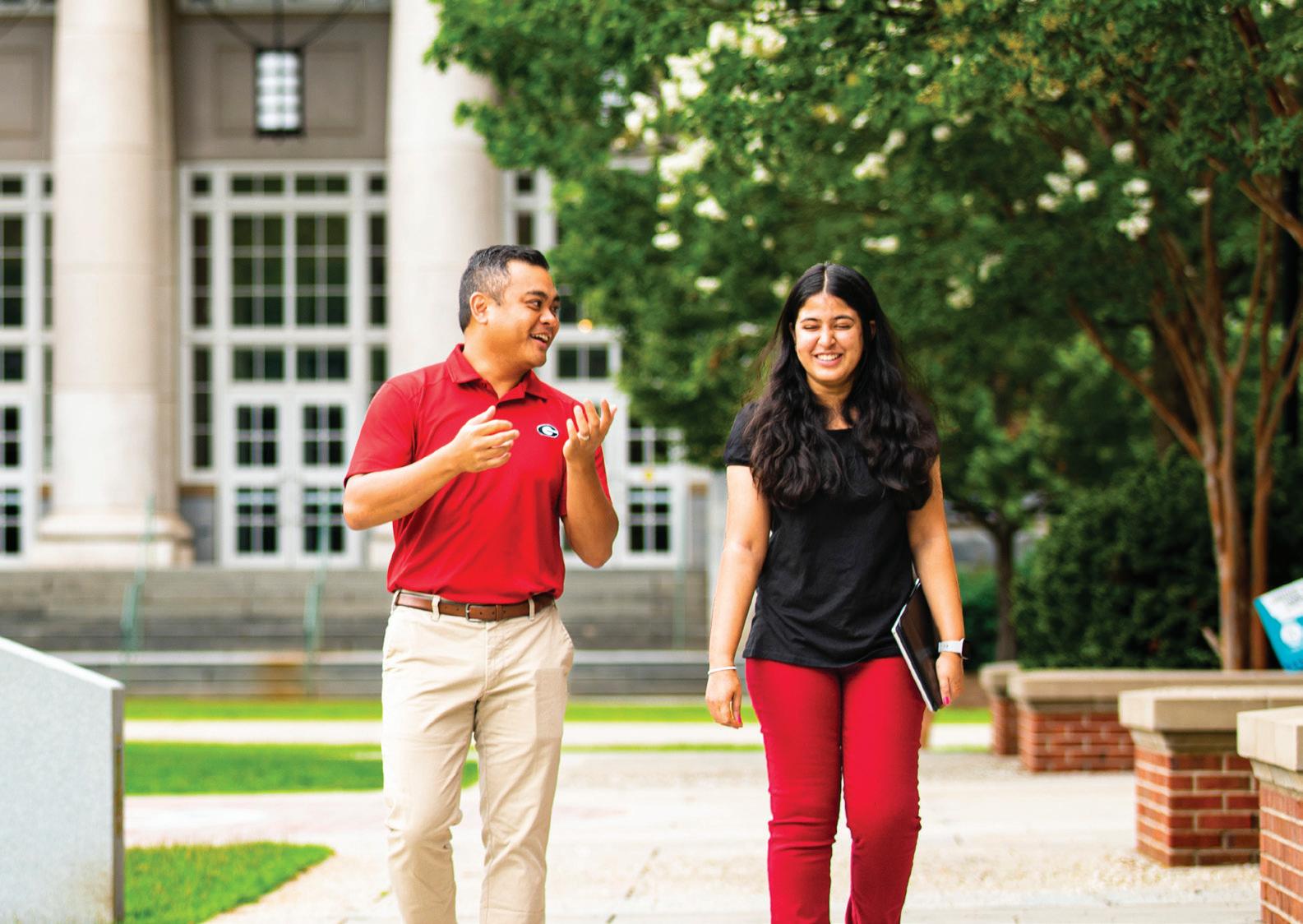
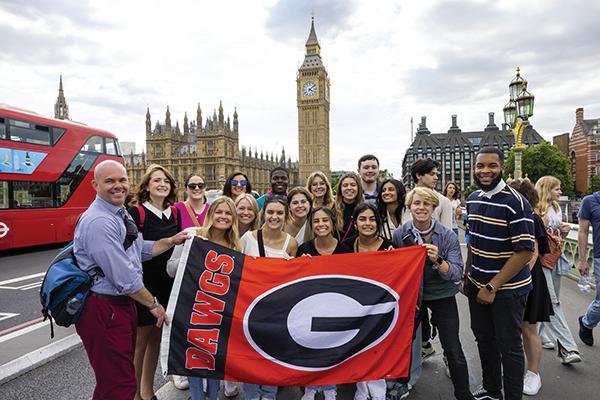


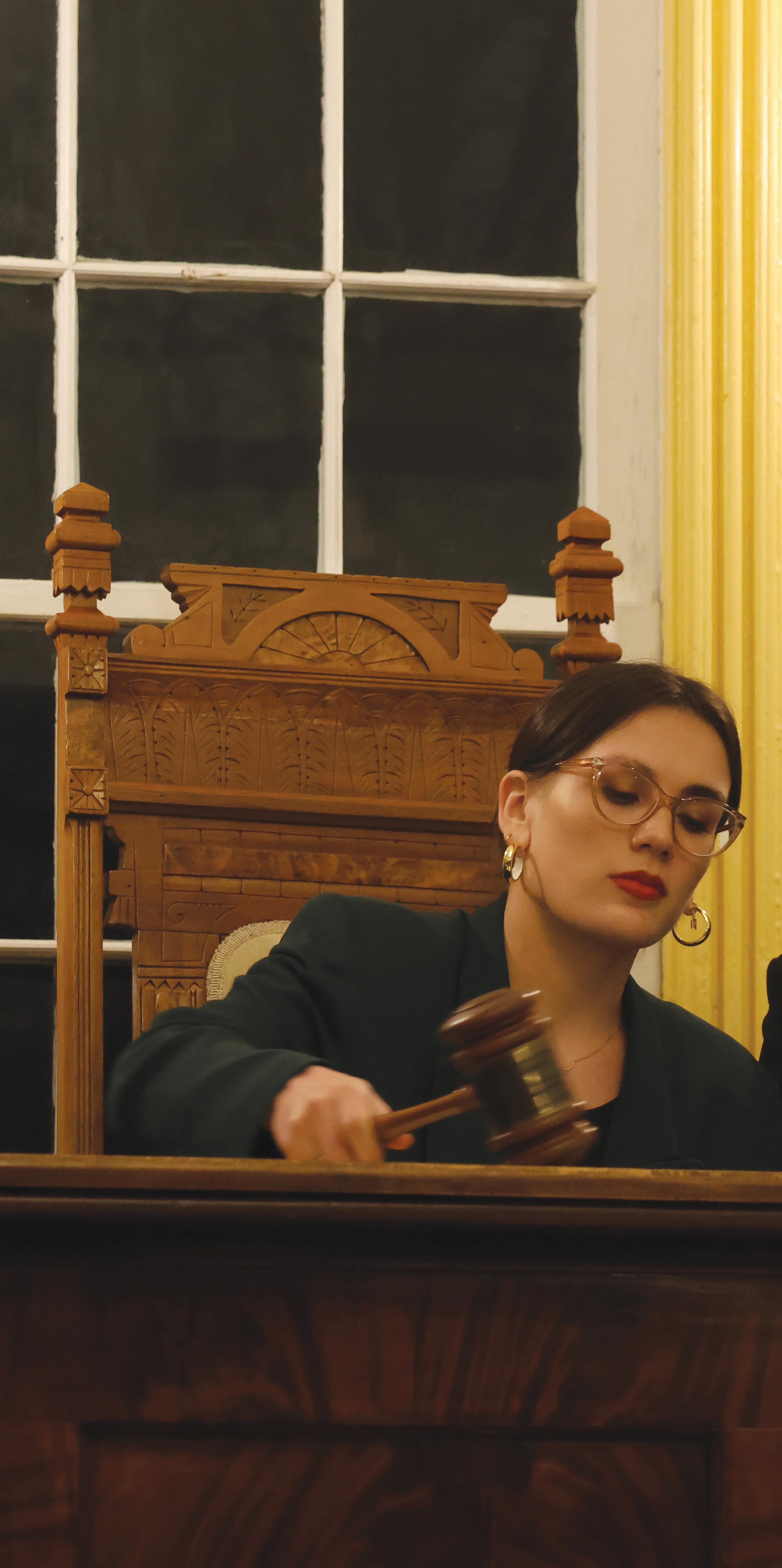
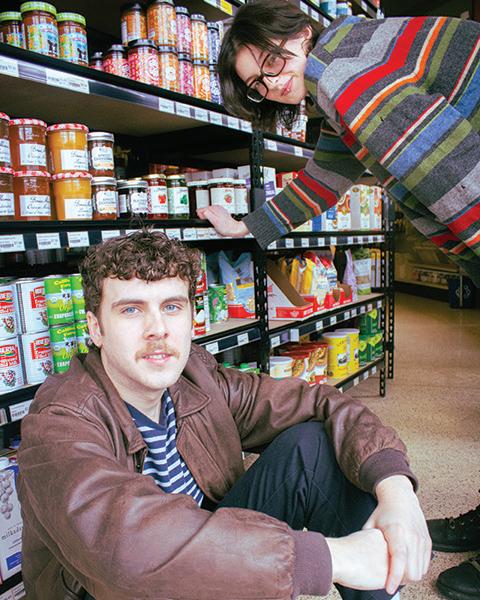


Athens-based “post-college rock” duo Penny Loafer released “Fridge,” a single from their upcoming album, “Daily Deal,”on Tuesday, Jan. 28. The full album will be released on Friday, March 28.
Penny Loafer has a fresh take on indie rock: delicious and punchy, with a mix of grunge grit and pop sweetness. Together, Emma Barnes on vocals, guitar and keys, and Seth Parker on drums and percussion craft a sound similar to a ‘90s mixtape, yet undoubtedly their own.
Backed by a groove-heavy bassline, “Fridge” offers a playful but biting commentary on the comforts of modern convenience in everyday life. Barnes’ vocals maneuver between sardonic observation and heartfelt reflection.
The song slowly builds from jangly verses into an electrifying chorus, before exploding into chaos. The verses use soft melodies juxtaposed with angry and grungy choruses, and the lyrics are simple and repetitive, making the song powerful and catchy.
Penny Loafer has one other song called “Lynx,” which is similarly witty, fast-paced and engaging. The band has truly begun crafting its own unique sound and message.
“Fridge” reflects the theme of young adults experiencing post-college life. Anyone who enjoys indie rock music will like this song. My one qualm is that, as catchy as the track is, I can see myself quickly growing tired of the song if it were overplayed.
— Jessie Isaacs
The “Awe of Ordinary Labors: Twentieth-Century Paintings from Ukraine” exhibition at the Georgia Museum of Art is free to all and on display until June 1, showcasing 44 paintings by Ukrainian artists working between the 1930s to 1980s. Alexis Gorby, associate curator of academic and campus engagement at GMOA, gave me a tour of the exhibit. The paintings depicted an era of socialist realism in Ukraine, during which art had to be state-sanctioned by a government intending to promote socialist ideals. Under these strict conditions, many artists incorporated “subversive statements” into their work to capture their true perspectives on the Soviet regime, according to the exhibit description.
One of my favorite pieces was the still life painting, “Peonies,” by Stanislav Antoniuk, in which the artist was able to hide her criticism of Soviet life by painting the flowers in a dark room with somber colors that essentially represented the “dark and joyless” nature of Soviet life.
Being Ukrainian-American myself, I have grown up immersed in Ukrainian culture and am well-versed with its historical background. I appreciate that the museum arranged plaques throughout the exhibit explaining the historical context around the artwork, which I believe did justice to the more somber side of Ukraine’s history. However, while this specific exhibition represents past Soviet life, I hope the museum can one day showcase Ukraine’s rich, vibrant culture in its entirety.
— Sophia Bobo


Playa Bowls is celebrating Valentine’s Day with two limited-time specials, available through March 3: the Bae Bowl 2.0 and the Chocolate Covered Strawberry Smoothie. As I stepped into the restaurant in Beechwood Shopping Center, I noticed several customers trying the festive flavors. Naturally, I had to join in and sample both treats myself.
The Bae Bowl 2.0 was fresh, flavorful and impossible to put down. The mix of strawberry, banana and pitaya bases was smooth and sweet, while strawberries, coconut flakes and Goji berries created a tart contrast. The granola added crunch, and a chocolate drizzle served as a rich element to top it all off.
The Chocolate Covered Strawberry Smoothie was a delicious and refreshing treat, perfect for Valentine’s Day. The blend of strawberries, chocolate whey protein, chocolate sauce and coconut milk created a smooth texture. The fresh strawberries added a natural sweetness, while the coconut milk gave it a tropical twist. However, I found myself wanting a stronger chocolate flavor to really bring out the “chocolate-covered” experience. A little extra chocolate sauce could have made it even better, but it was a tasty and satisfying drink.
I thoroughly enjoyed these Valentine’s-themed treats and will definitely be going back for more. The smoothie was sweet and refreshing, while the bowl was fresh and full of flavor – both serving as a great way to celebrate the holiday.
— Katie Jarrard
Yakim Herriot, a senior in the University of Georgia’s music business program who goes by the stage name of Kimbo Navé, released his single, “So What,” on Friday, Feb. 14. This release comes ahead of his full EP, “After Hours,” scheduled to release on Friday, Feb. 28. “So What” has elements of R&B and rap with a sound similar to Don Toliver’s music. While it does use autotune, the song is craftily made to have a cosmic atmosphere style of sound.
According to Kimbo Navé, “So What” is meant “to resonate with those who feel like they are holding back in their lives.” Through the song, he wants to inspire his listeners to live out their stories, regardless of what others may think. This theme is present throughout the rap song, which is electrical and upbeat, and carries a catchy flow with lyrics that are both inspirational and personal.
Kimbo Navé’s hope to motivate listeners to take control of their own lives makes a strong appearance in the chorus of the song, where he sings, “I cannot live up in the backseat, handle that, tell em’ so what.” His message to live unafraid and unapologetically is heavily present in the bridge, where he sings, “I’m the type to keep on rooting for the branchout.”
“So What” has more than just a consistent beat and catchy flow — the lyrics are strong and heartfelt, offering encouragement to listeners.
— Price Andersen



‘Weird and wonderful traditions’
Demosthenian Literary Society keeps traditions alive for over 200 years
Ellis Goud
Students gather in the debate chamber of Demosthenian Hall, waiting in anticipation for the president to open the floor. As the sound of the gavel striking echoes across the chamber, the room roars to life.
The Demosthenian Literary Society, the oldest student organization at the University of Georgia, is rooted in traditions. Founded in 1803, the society functions as an extemporaneous debate organization in which members debate various topics without preparation.
Every Thursday, members of the society come together and debate in Demosthenian Hall – a building more than 200 years old.
Holding on to history
Demosthenian Hall was constructed in 1824, making it the fourth oldest building on campus. Society members - the only UGA students who can unlock the building’s doors –use it for weekly meetings, as well as a space to socialize.
“I feel like this hall is really what makes it, because we all have keys to the building,” Ashlyn Earnest, DLS historian and alumni relations chair, said.
On the bottom floor of the hall, members study and socialize surrounded by historic photos of the society. The second floor holds the debate chamber, the society’s main meeting space, with a speaker’s lectern hand-built for the society in the 1820s in the middle of the chamber.
While the hall has been altered over the years, including the staircase being moved and rebuilt, Demosthenian members have invested in restoration and preservation efforts to reflect what the building looked like over 200 years ago. In 1997, the Upper Chamber was restored to its 1824 layout and color scheme, using over $200,000 fundraised by the society. The original hardwood floors of the hall were uncovered and restored and a historic paint analysis was conducted, restoring the walls to the original white.
While the society today remains close to what it was like historically, there are some traditions that were destined to be broken. The society has historically excluded women
from membership and access to Demosthenian Hall.
According to Earnest, the 1824 constitution of the society imposed a fine of $5 – equivalent to about $175 today –for any member who brought a woman into the hall. Other offenses listed in the constitution had fines ranging from 25 cents to $1.
After 167 years of male-only membership, women were officially allowed into the society beginning in 1970. Now, there are more female members than male members, with many taking officer positions. The past four presidents, including the current president, Lindsey Falvo, have been women.
“It’s just nice to see that we have managed to push our way through … in a crowd that did not want us here,” Falvo said. Traditions, traditions Throughout its 222 years, the DLS has adopted many unique traditions. Whether it is society members singing the national anthem at midnight or impeaching the president every year, the organization celebrates its culture through an array of meetings and customs.
“There are other literary societies that exist, but they’re few and far between,” Falvo said. “It’s such a unique culture, we have so many weird and wonderful traditions that you’re really not going to find any other place.”
In addition to weekly debates, the DLS hosts several special annual meetings. Every spring, Demosthenian hosts a debate against the Phi Kappa Literary Society, another one of UGA’s oldest campus groups, to highlight the skills of the societies’ best speakers.
On the meeting closest to Halloween, the DLS hosts what it calls a “Hat Debate,” where members and guests pull a topic of debate from a hat.
The society’s biggest tradition since 1955 is its annual All Night Meeting. On the Saturday that falls closest to the anniversary of the society’s founding, Feb. 19, members host a meeting running from 7 p.m. to 7 a.m. the next day.
Other college literary societies, DLS alumni and guests are invited to participate in dinner and debates through the night and early morning. This year, approximately 200 people attended the meeting, including seven literary so -
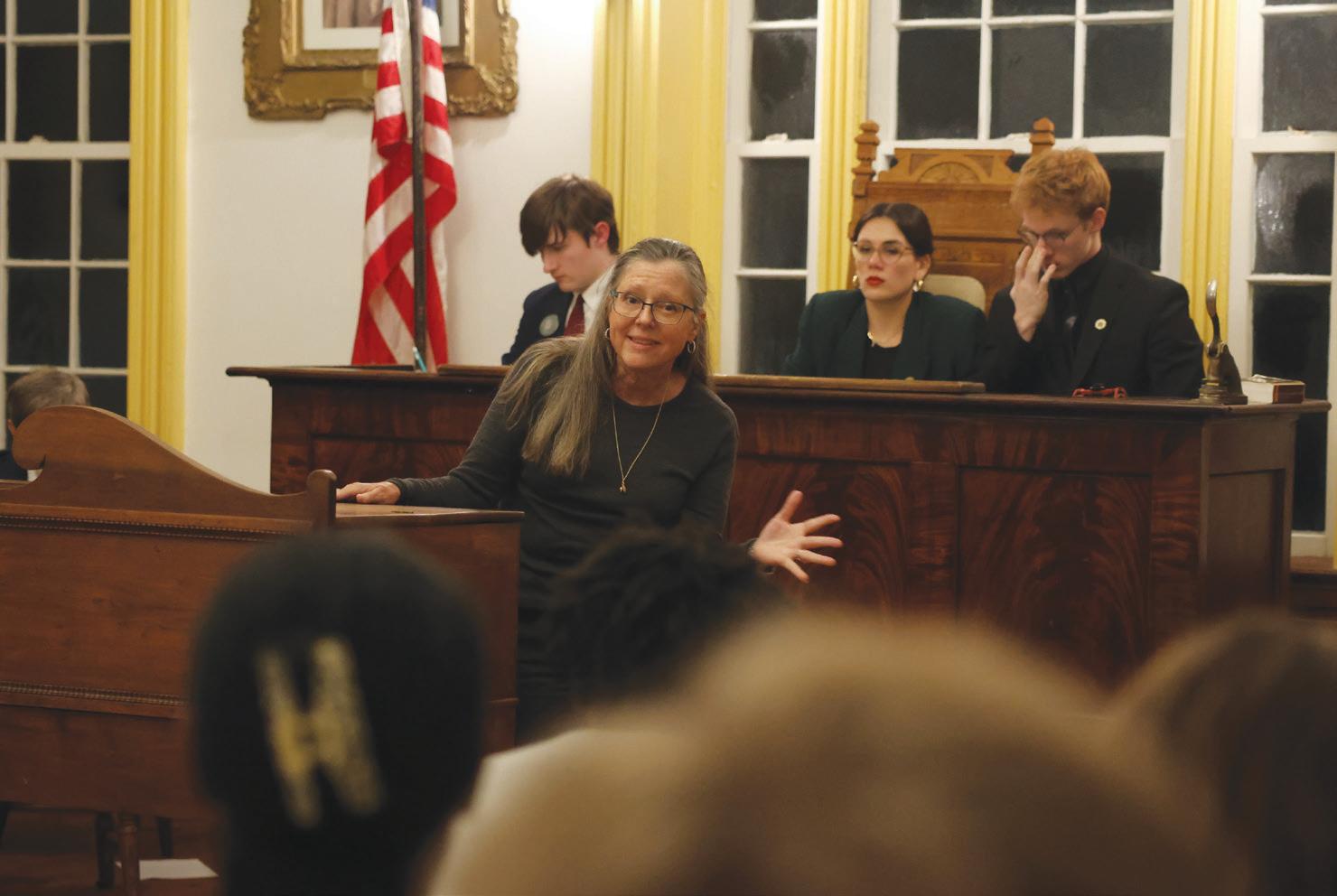
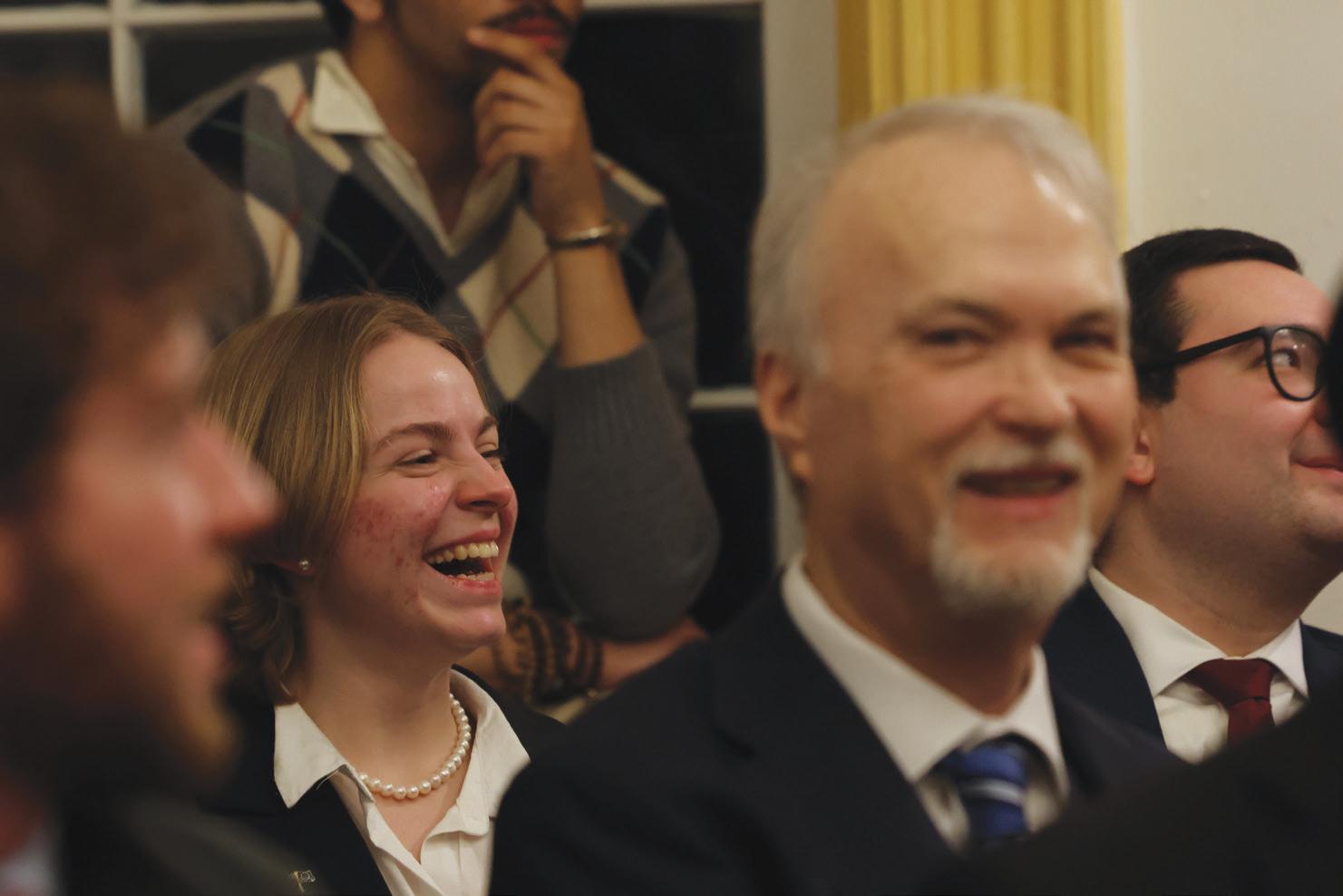
cieties from four different colleges.
Members of the Philodemic and Philonomosian Societies from Georgetown University attended the meeting for the first time in modern history.
“I think the highlight was seeing the alumni come back from such a broad background,” Scott Lichamer, president of the Philodemic Society at Georgetown, said. “It was really interesting to see all the alumni come back and really still have the passion.”
After speeches by the DLS president, historic preservationist, historian, faculty advisor and guest speaker Former U.S. House Representative John Barrow, DLS officers awarded members with Speaker’s Keys. Each year at the All Night Meeting, certain members of the society receive one of these pins, recognizing their service and devotion to the society.
The first debate of the night kicked off with alumni only. Discussing topics like the state of Congress and federal funding, alumni had the opportunity to engage with the DLS like they did when they were members in college.
Some alumni present at the meeting graduated from UGA as early as 1982. Jack Dominey and Rob Owen attended this year’s meeting, more than 40 years after finishing their time in the DLS. Dominey and Owen were roommates during their time in college and joined the DLS within weeks of each other. Together, they represented almost every officer position.
“Demosthenian was absolutely central to our college experience,” Dominey, class of 1982, said.
Dominey and Owen said that the growth of the DLS caught their attention the most.
“I think we were both really thrilled to hear how robust the society is, because when we joined, there were fewer than 20 members,” Owen, class of 1984, said. “That’s just really heartening to think that this still appeals to people and it’s growing, because there’s a larger and more diverse group of people.”
Throughout its history, the literary society has seen many changes. But one thing remains the same – the organization long has been, and continues to serve as, a haven for students and alumni alike.
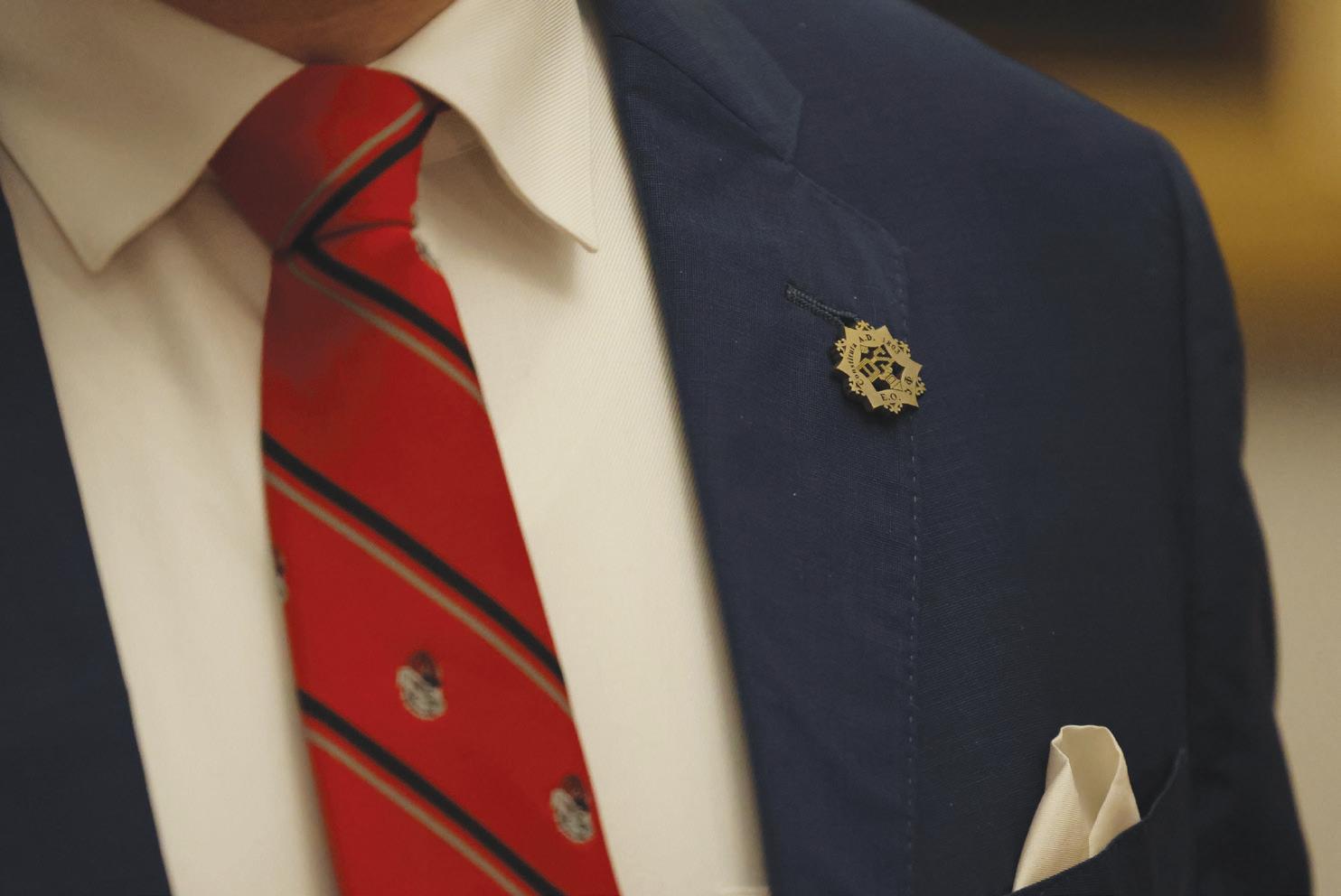
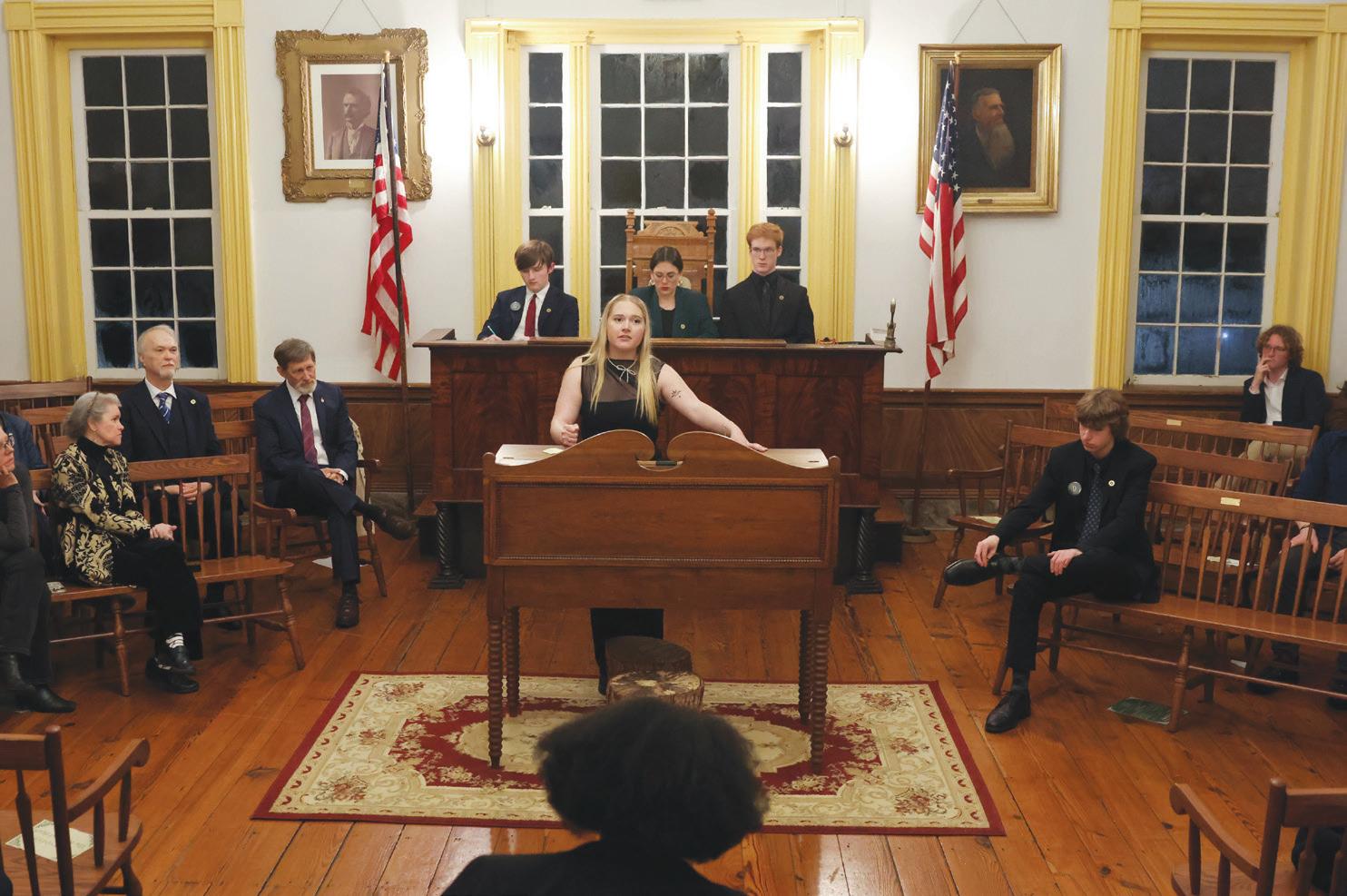
‘Everyone has a story’ UGA Marriage Pact returns
Though Valentine’s Day doesn’t come around until Feb. 14, numerous University of Georgia students spent the month of January checking their email inboxes, anticipating the day their UGA Marriage Pact match would be revealed. Through the Marriage Pact, an annual matchmaking activity on college campuses, students “make a pact” by filling out an online questionnaire, which uses an algorithm to match participants based on their cultural, religious and social ideologies.
Each student’s match is intended to be their “optimal backup plan” should they remain single at some point in the future, according to the UGA Marriage Pact website.
Starting in 2017 as a market design class project at Stanford University, the Marriage Pact was first brought to the UGA in 2023 and has now had a successful two-year run. This year’s effort was spearheaded by four UGA students.
In October 2024, Eniola Badejo, a sophomore entertainment and media studies and management information systems major, reached out to the main Marriage Pact organizers over email, asking if it would be returning to UGA in the coming year. According to Badejo, they immediately took him on, expressing their interest in having enthusiastic students to take charge of the pact at their respective universities.
“I can’t overemphasize how much I love the concept of Marriage Pact; I love how everyone has a story from it,” Badejo said. “I was so inspired by it that when it came [to] next year and I didn’t see any flyers and any posts … I reached out to the team.”
Badejo was tasked with forming a team of people who have a multitude of connections to different groups across campus. He decided to bring in Alyssa Aghabeg, Oppy Findo and Cole Doherty to make the 2025 UGA Marriage Pact possible.
“It was all very fun from the start,” Aghabeg, a junior marketing and entertainment and media studies major, said. “I think it’s a great way to make the campus feel small, which is impossible to do at a huge SEC school.”
Throughout the weeks between the first Marriage Pact teaser emails in early January to the release of matches on Jan. 23, the team used word-of-mouth to spread interest and create a chain reaction inspiring students to take the survey.
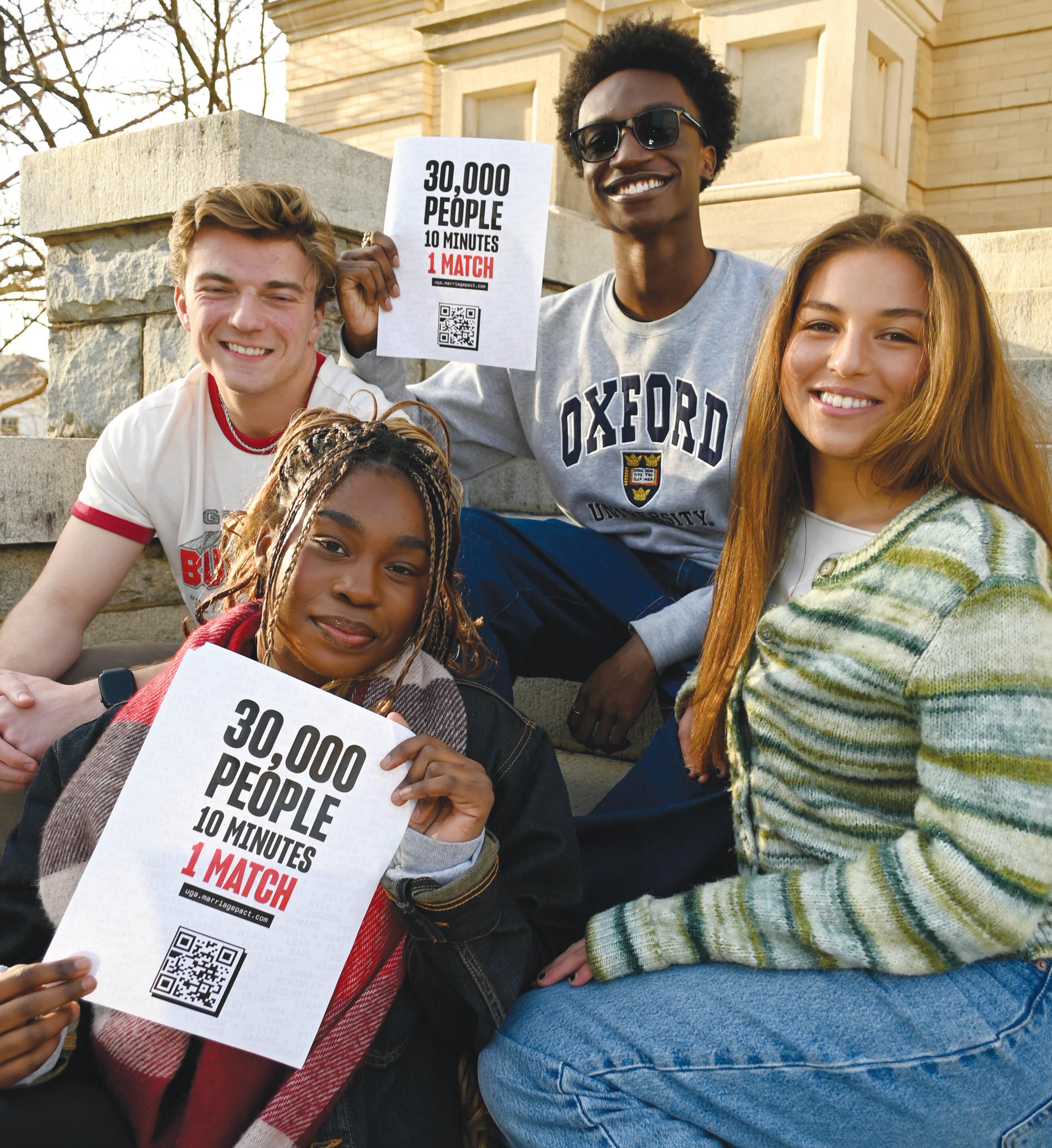
ceived a final teaser with the initials of their best match, with the final reveal coming just a few hours later.
“The funniest stories are people who got the initials of people that they know,” Badejo said. “One of my friends, she door-knocked the dorms on campus, trying to get more men to take it so then her [match’s] initials would change. She was hoping that one of the men that take it after she
the Marriage Pact survey. The couple shares the same initials, and when bot of the “appetizer” emails included the initials “JH,” they suspected they had matched with each other. Their hunch was confirmed with the big reveal.
“It was just a confirmation of what we already know is true - that we’re really good together,” Haynes said.
According to Badejo, the suspenseful buildup before
